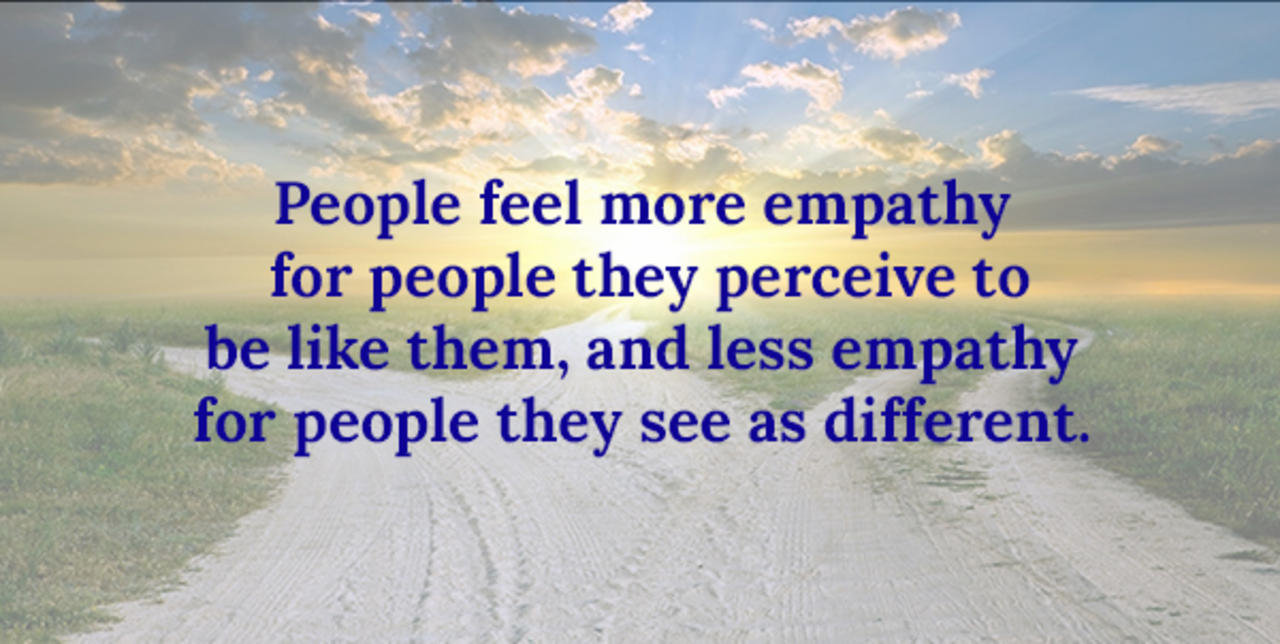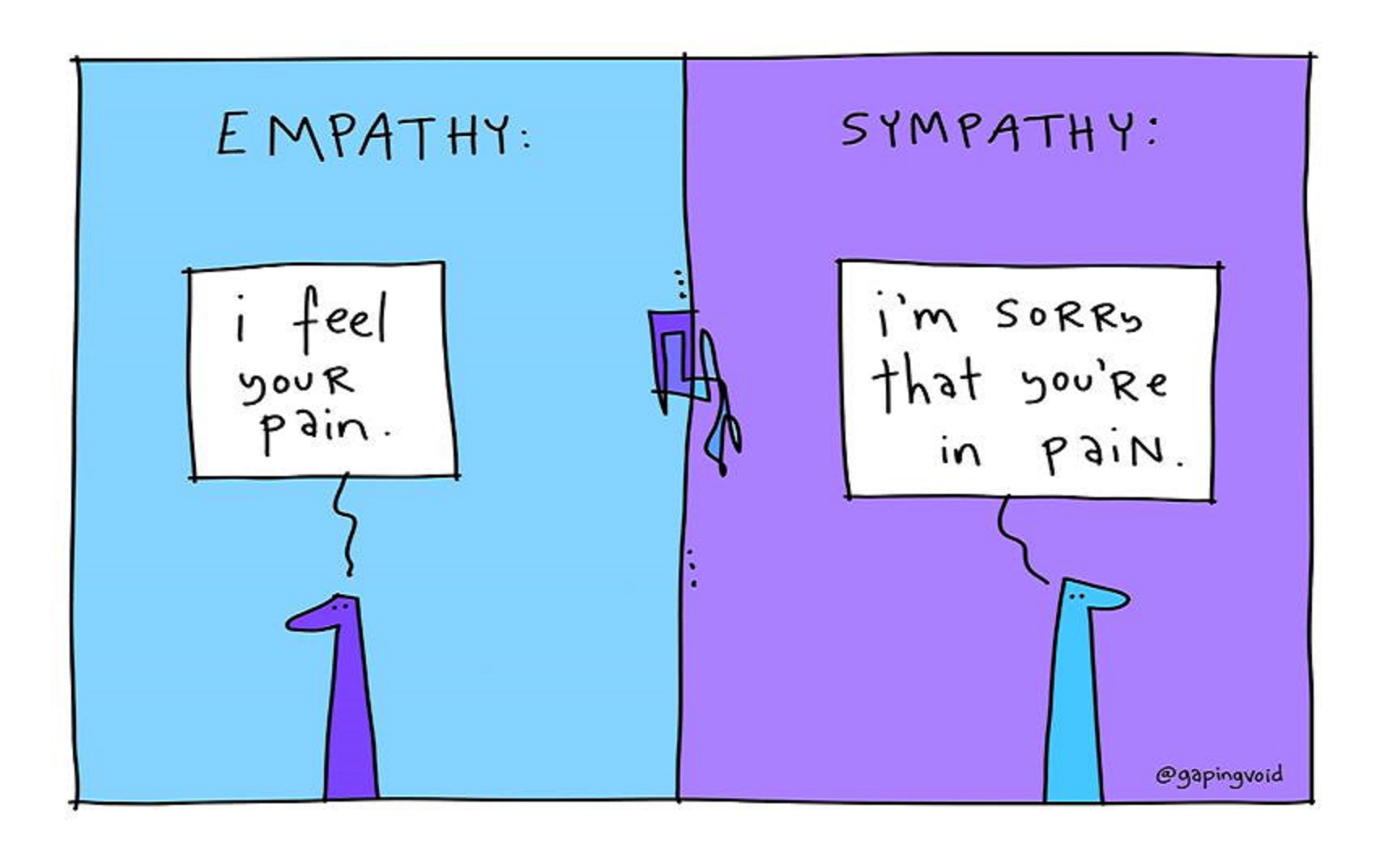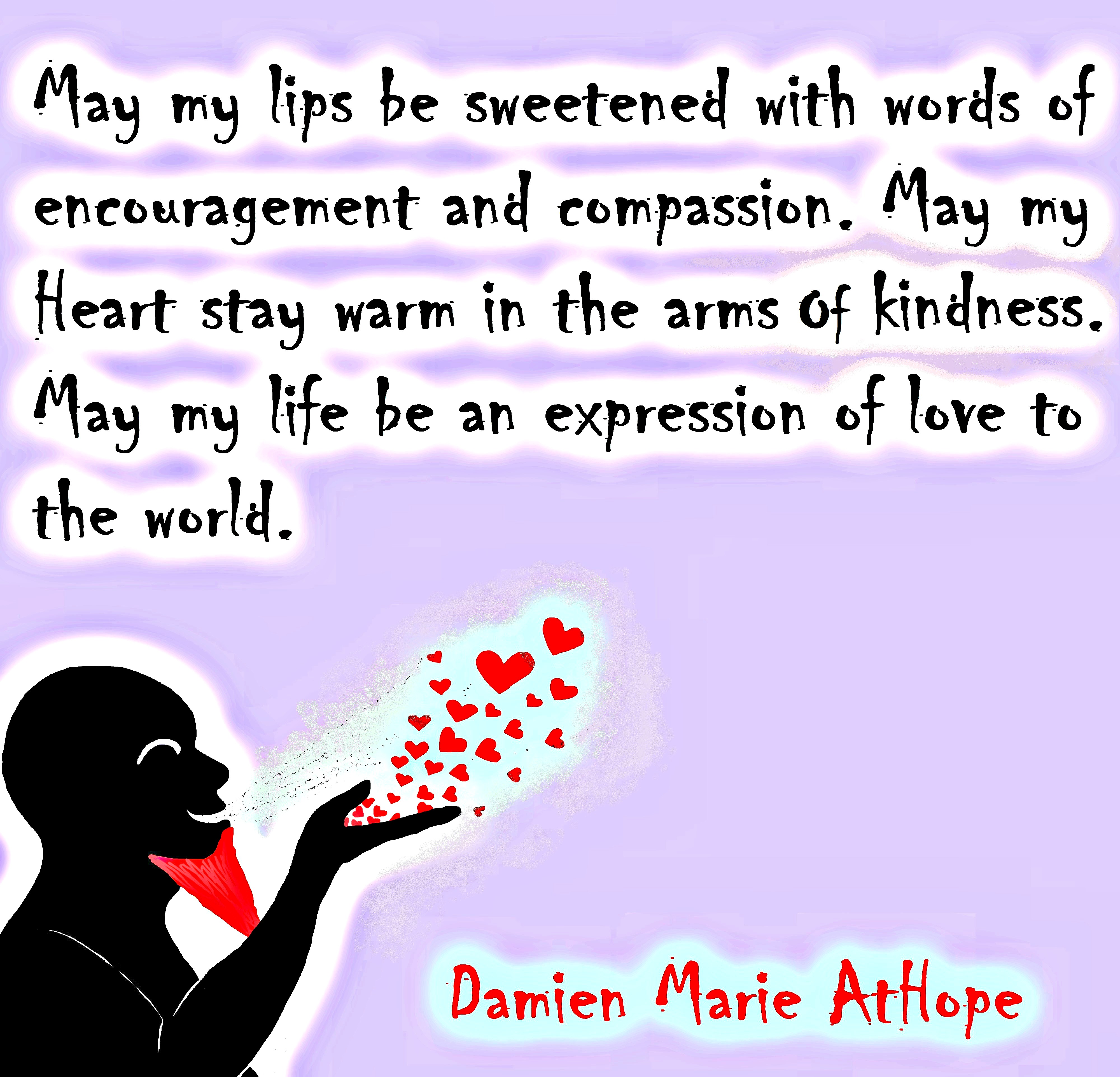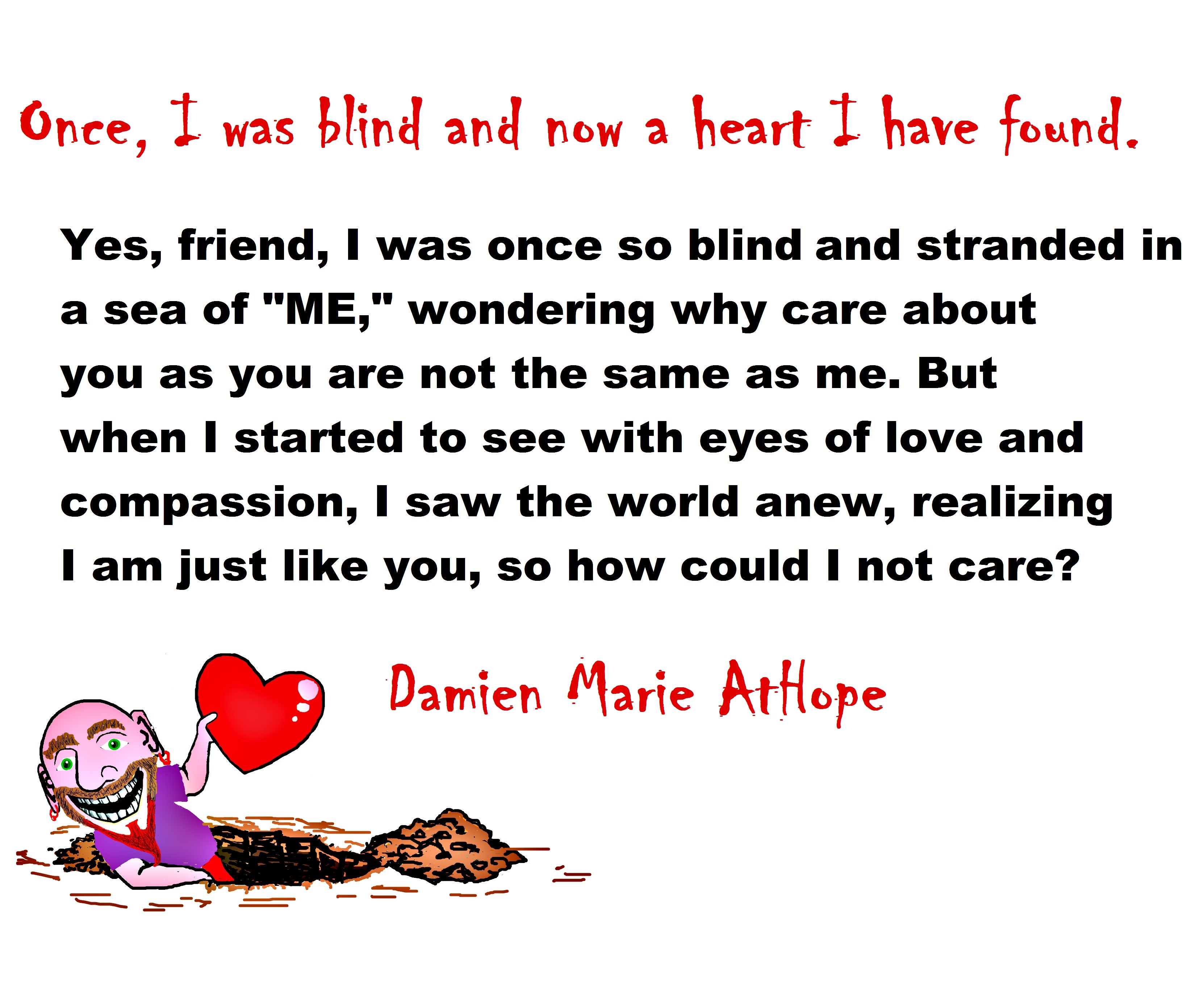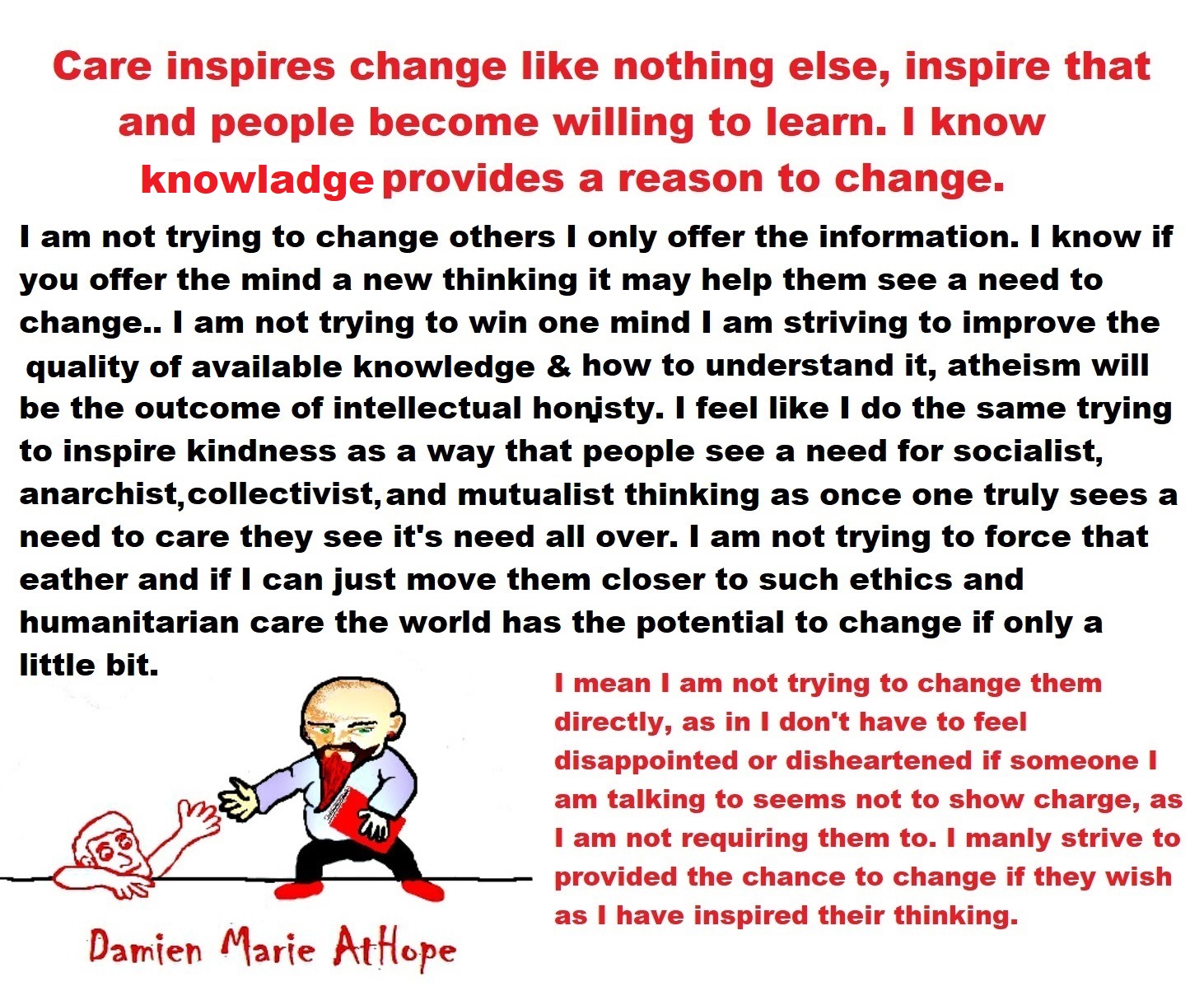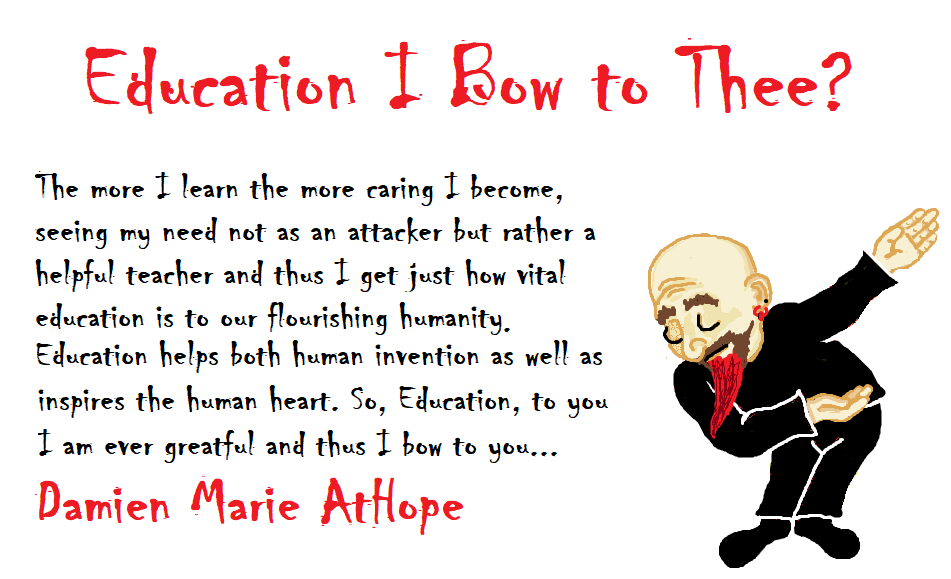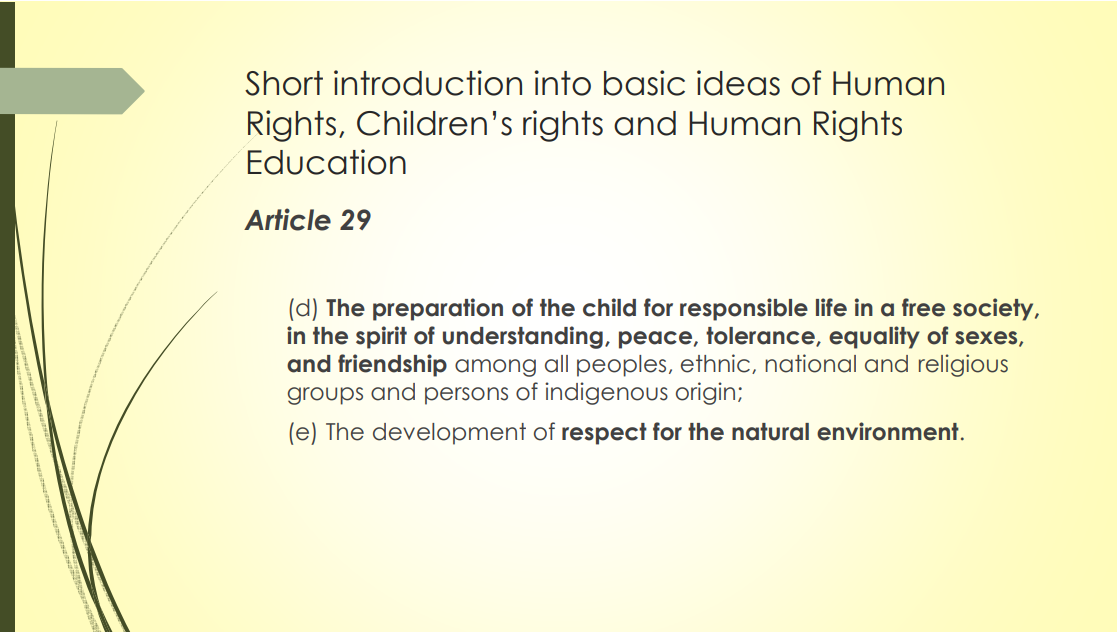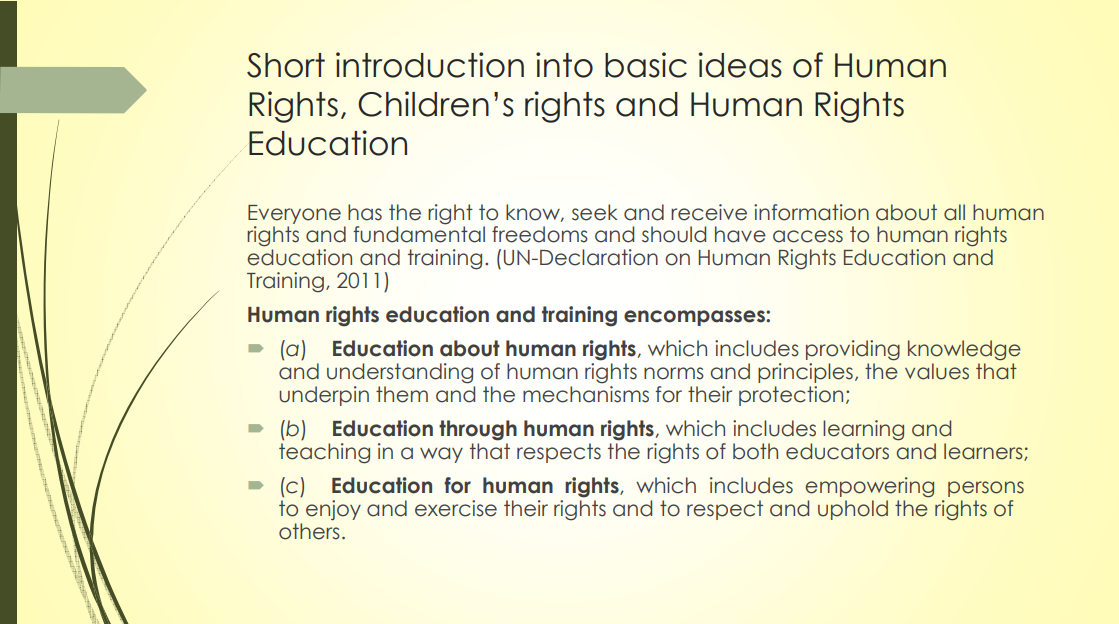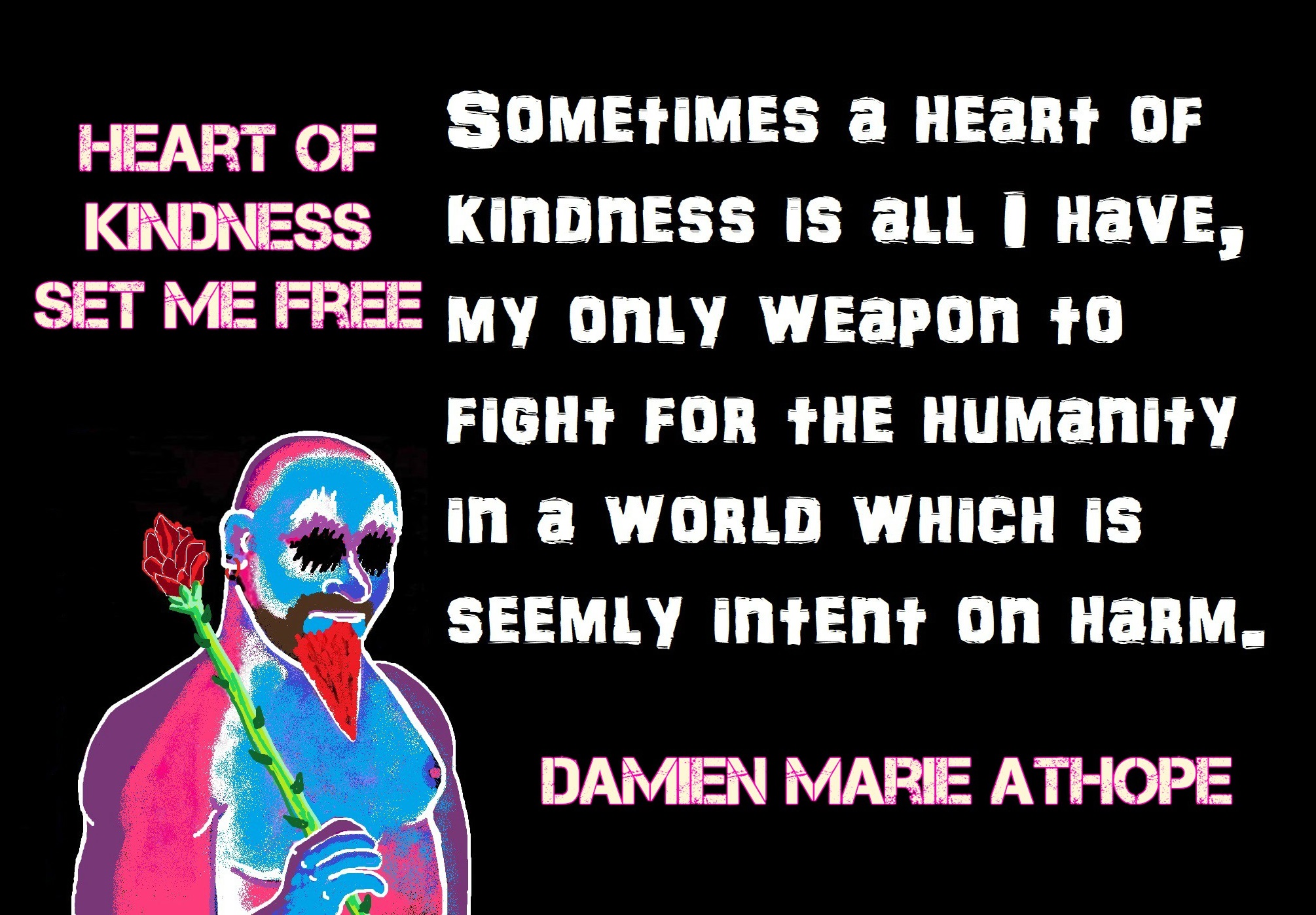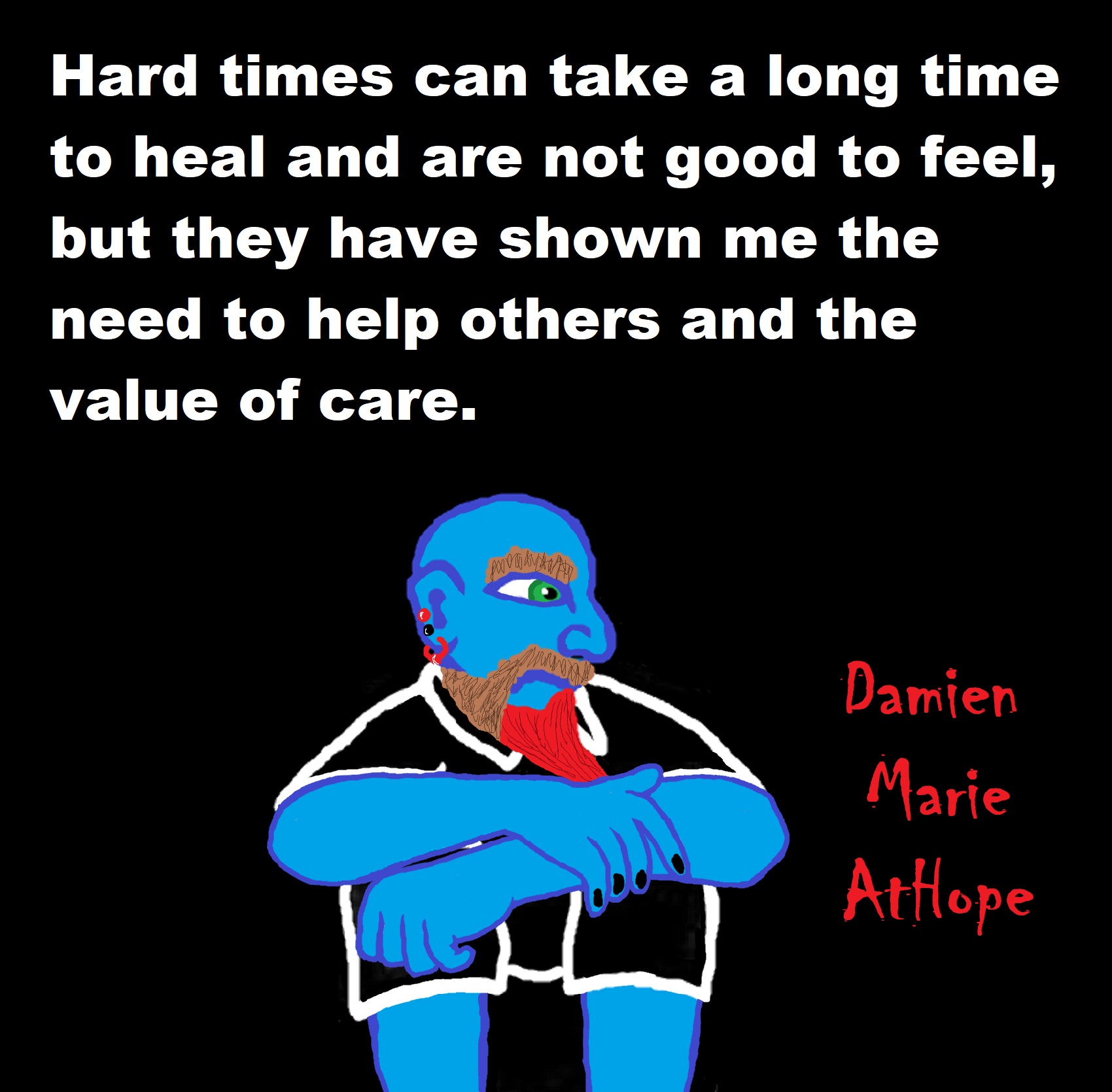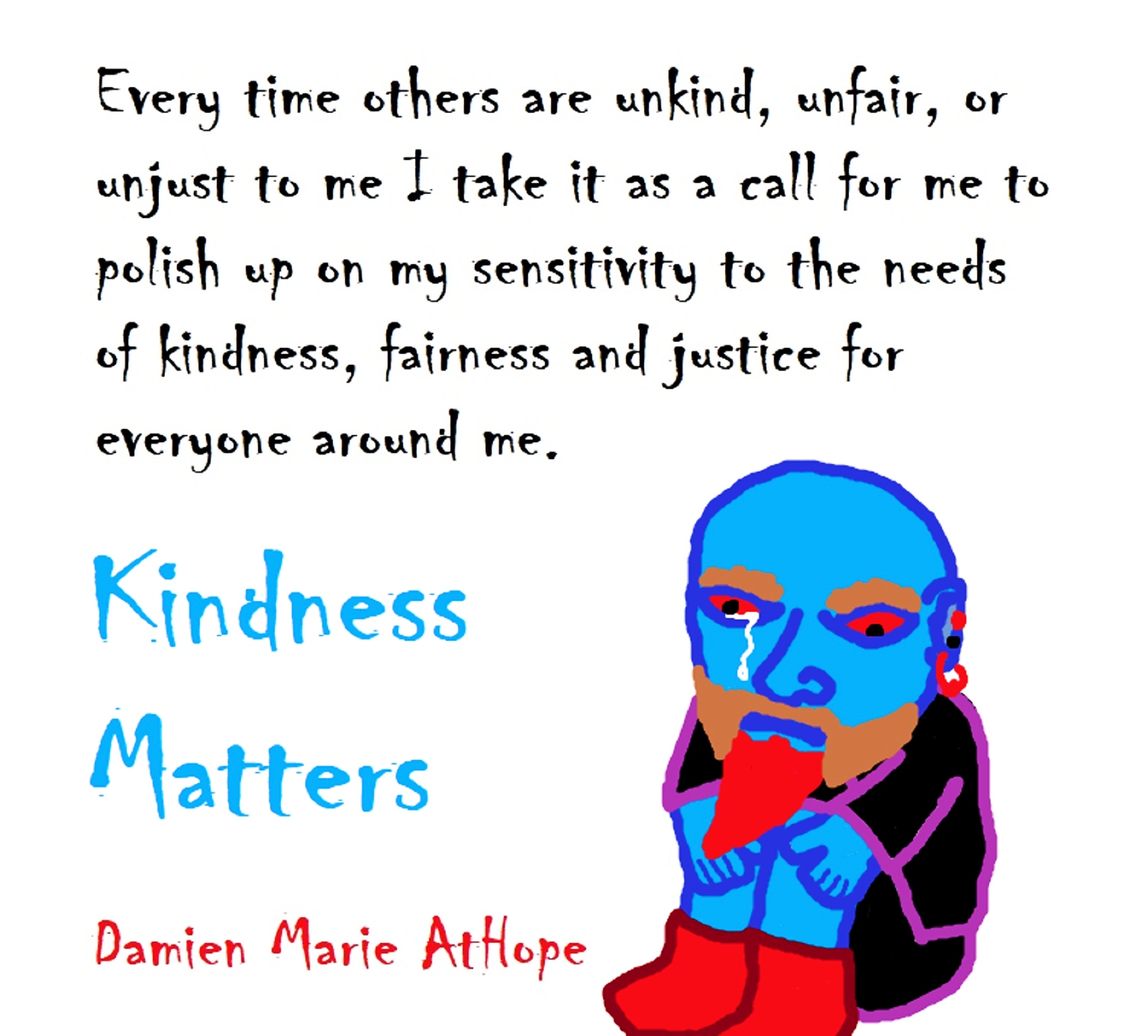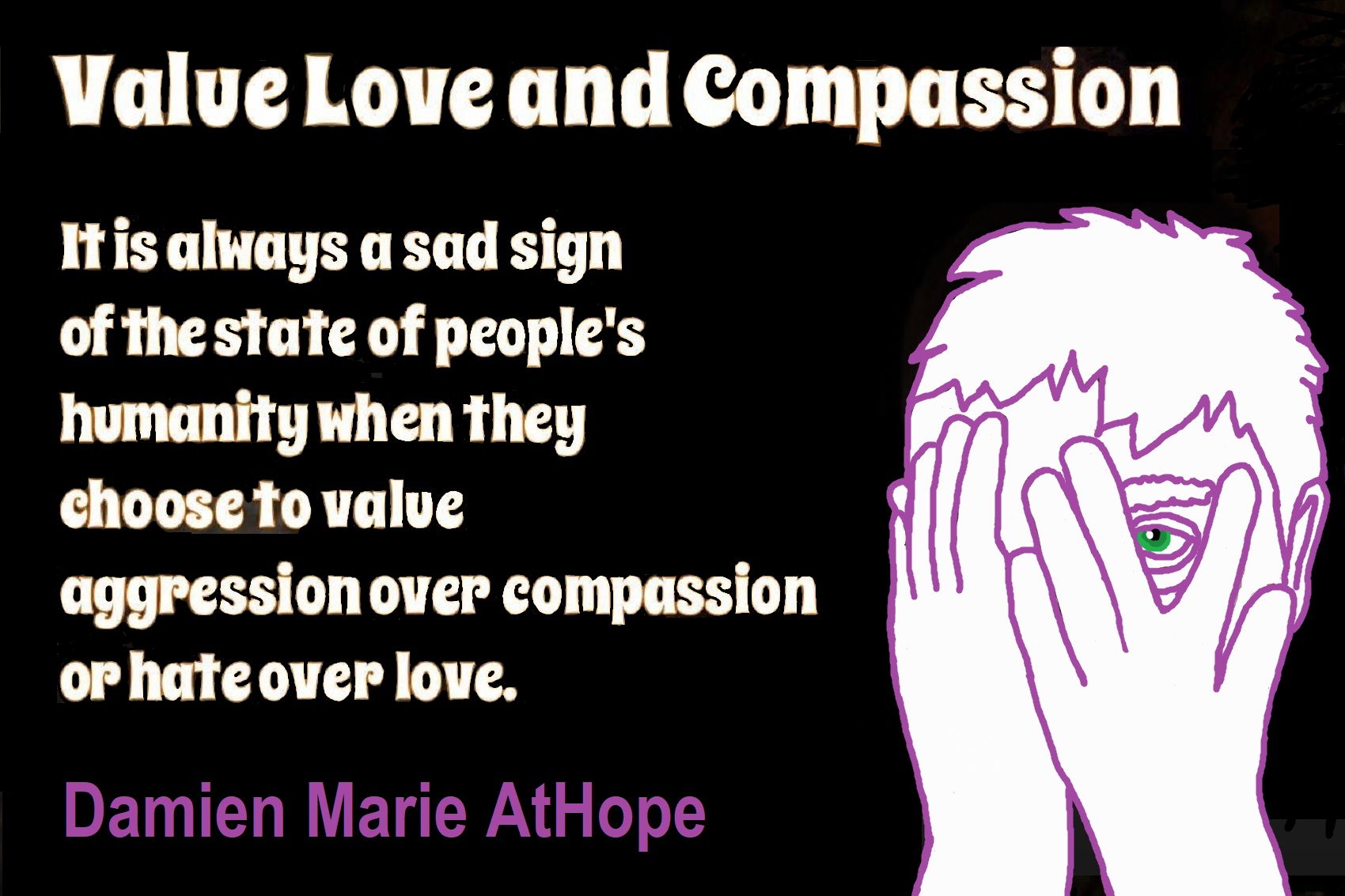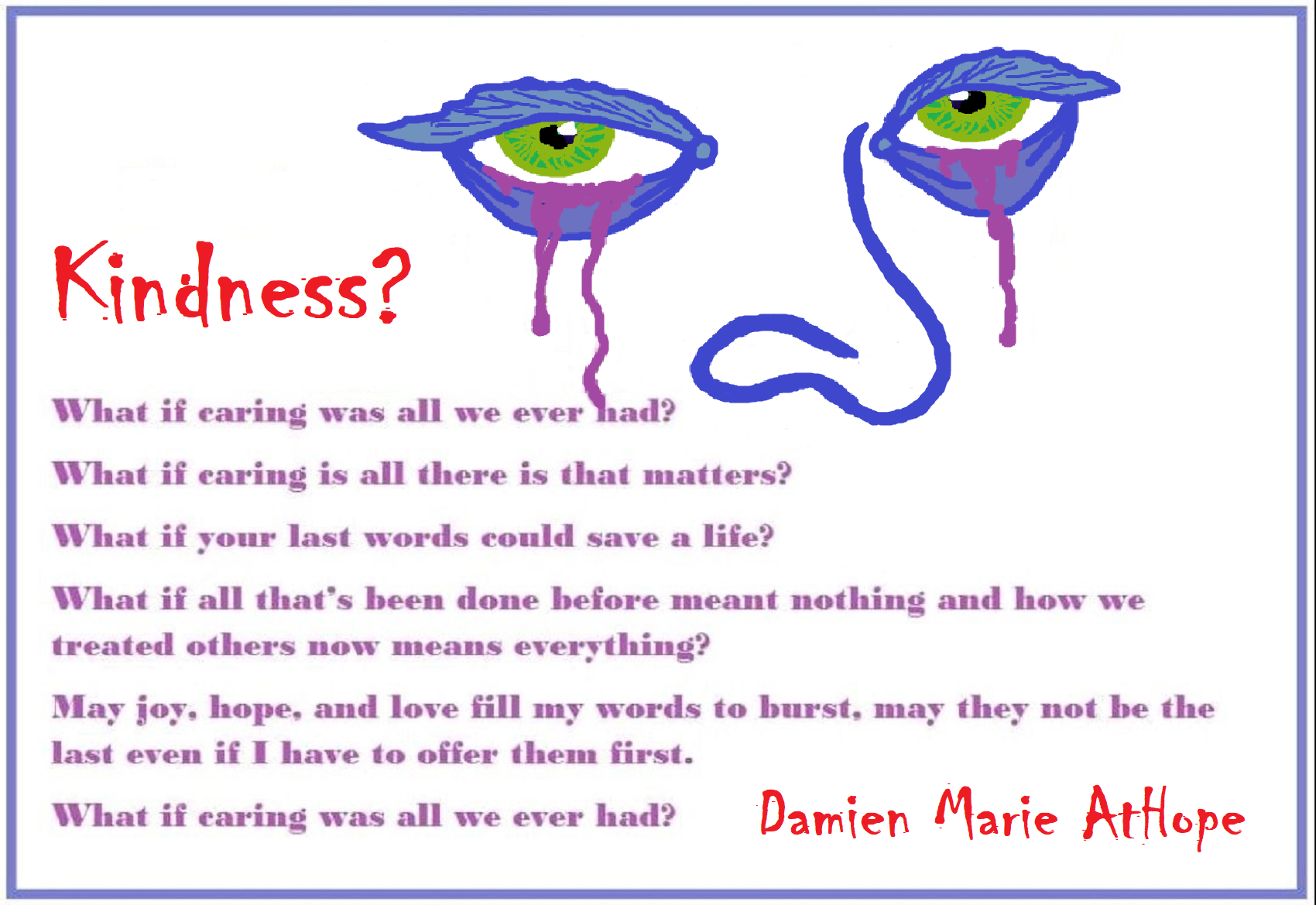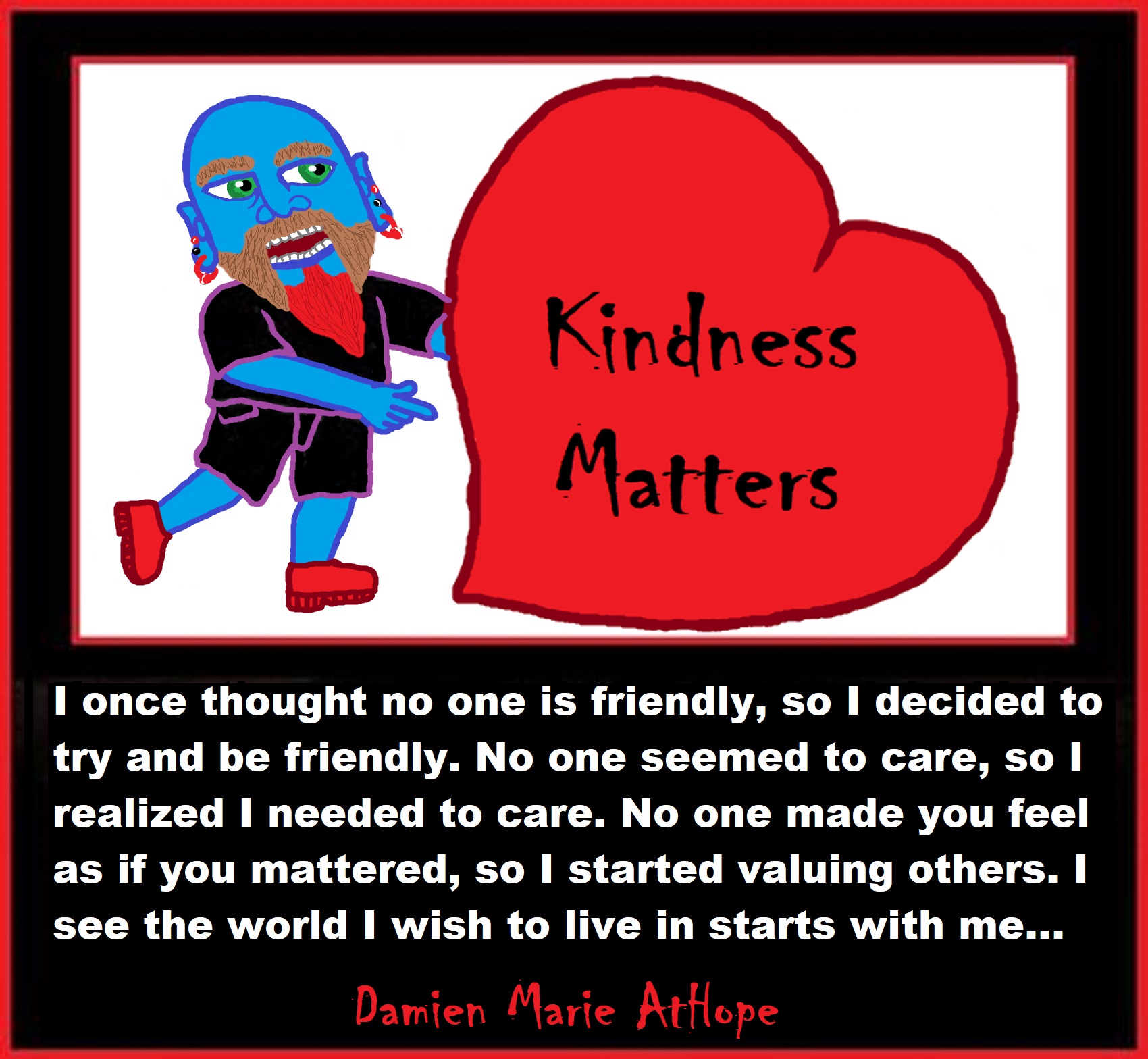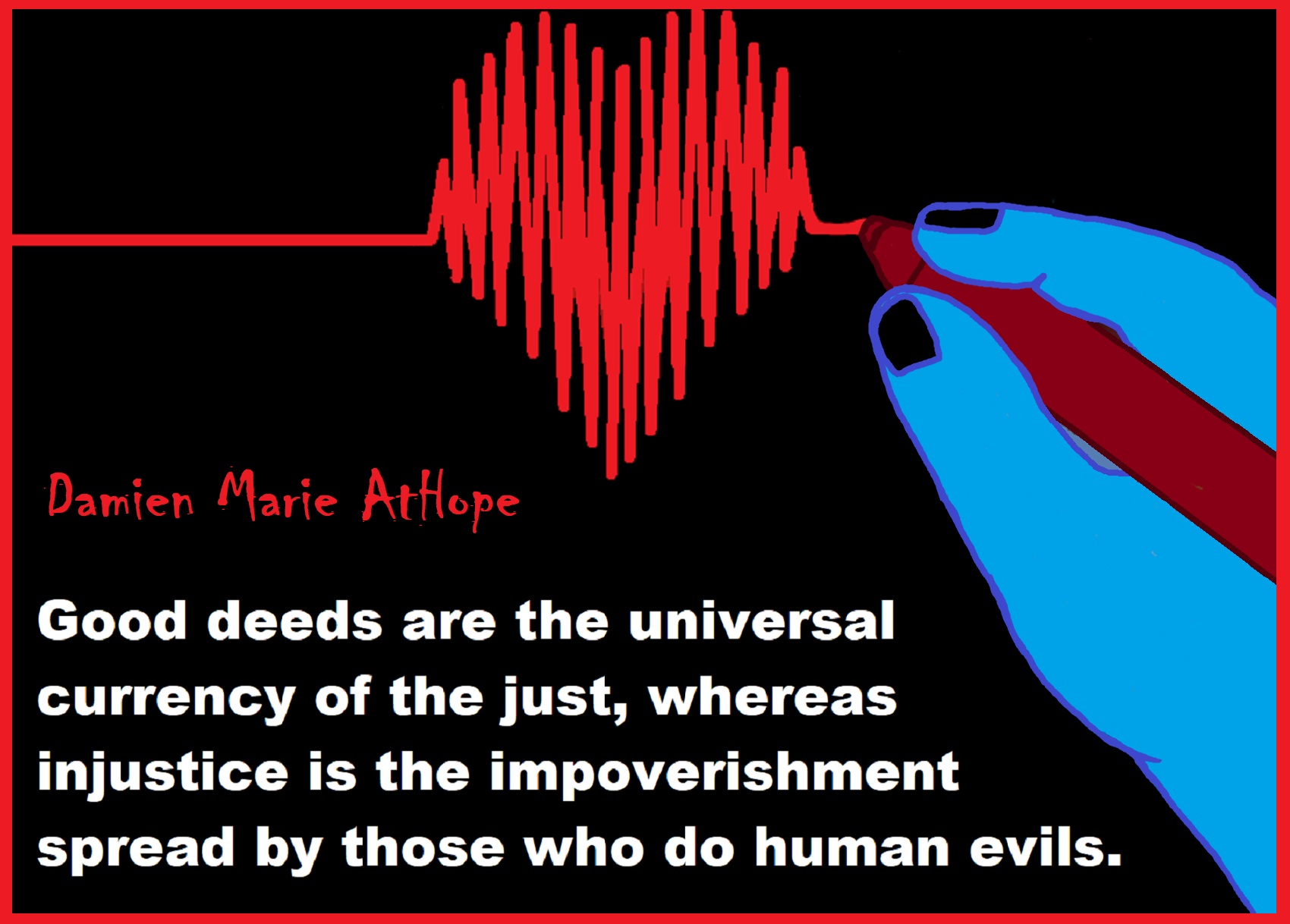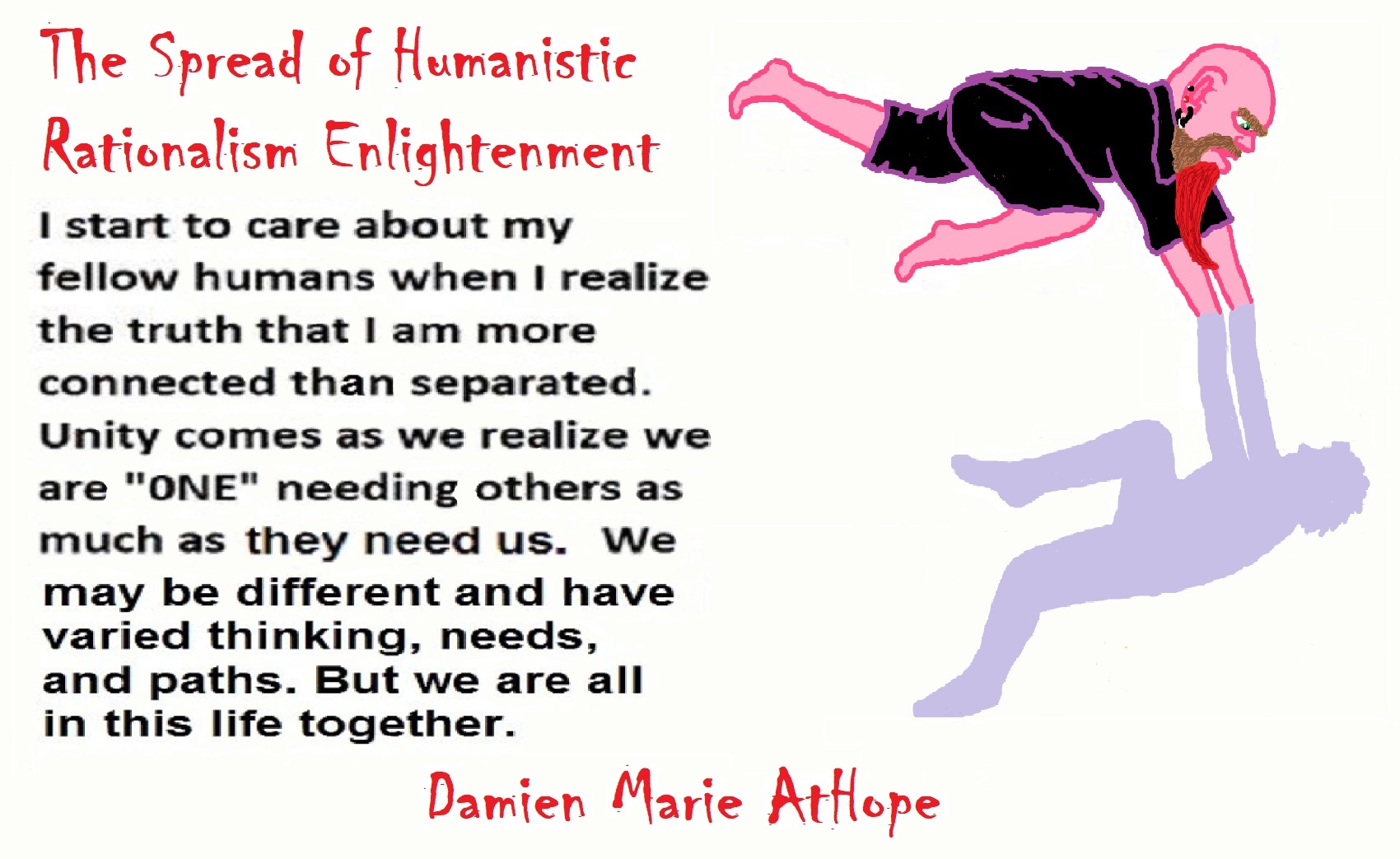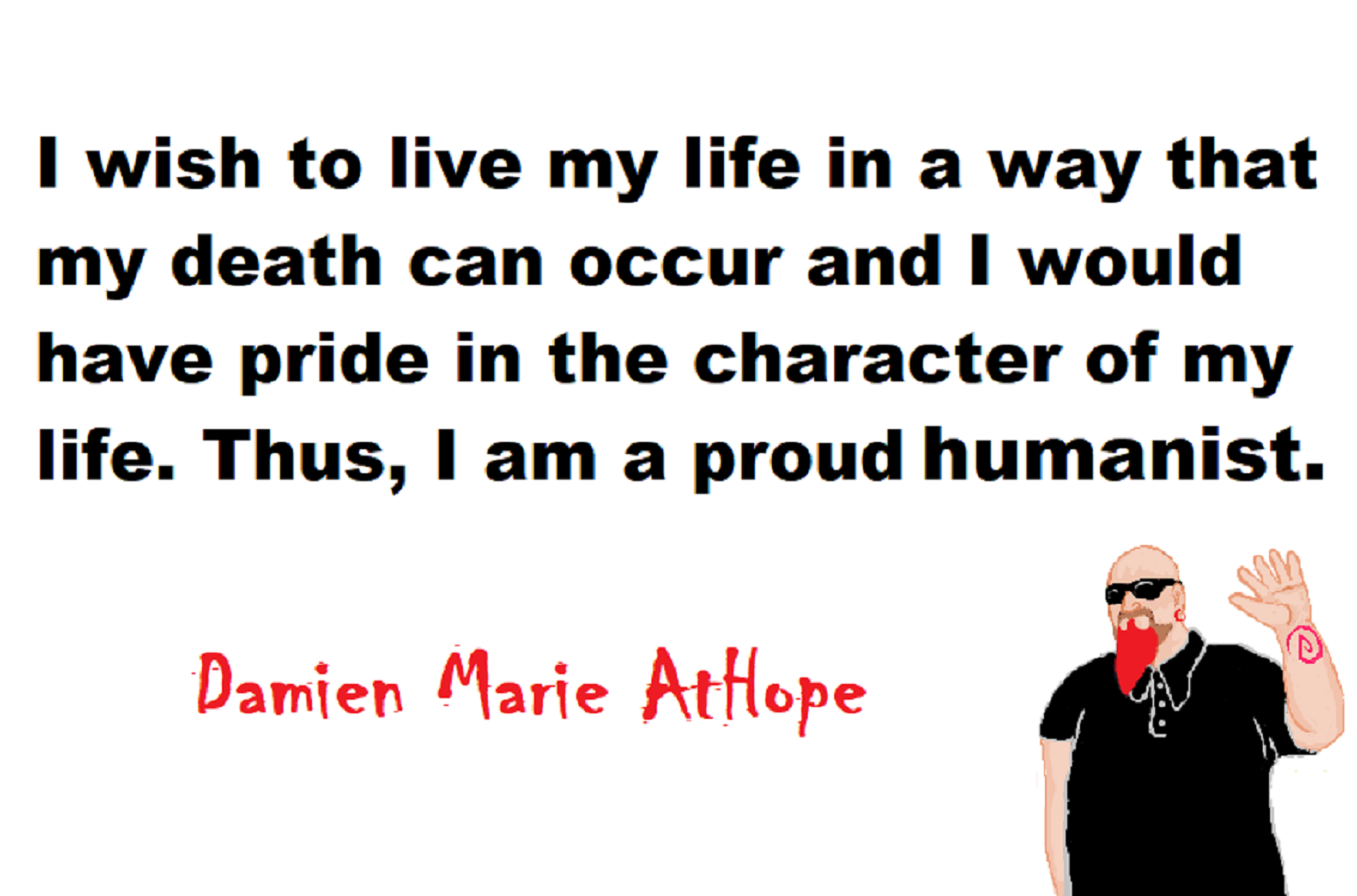The Three Kinds of Empathy: Emotional, Cognitive, Compassionate.
KINDS OF EMPATHY
Cognitive Empathy:
“Cognitive empathy definition: “Simply knowing how the other person feels and what they might be thinking. Sometimes called perspective-taking” ~Daniel Goleman, renowned psychologist and author of the 1995 book Emotional Intelligence.
What it’s concerned with: Thought, understanding, intellect.
Benefits: Helps in negotiations, motivating other people, understanding diverse viewpoints, and is ideal for virtual meetings.
Pitfalls: Can be disconnected from or ignore deep emotions; doesn’t put you in another’s shoes in a felt sense.” ref
Emotional Empathy:
“Emotional empathy definition: “when you feel physically along with the other person, as though their emotions were contagious.” ~Daniel Goleman
What it’s concerned with: feelings, physical sensation, mirror neurons in the brain.
Benefits: Helps in close interpersonal relationships and careers like coaching, marketing, management, and HR.
Pitfalls: Can be overwhelming, or inappropriate in certain circumstances.” ref
Compassionate Empathy:
“Compassionate Empathy definition: “With this kind of empathy we not only understand a person’s predicament and feel with them, but are spontaneously moved to help, if needed.” ~Daniel Goleman
What it’s concerned with: Intellect, emotion, and action.
Benefits: Considers the whole person.
Pitfalls: Few—this is the type of empathy that we’re usually striving for!” ref
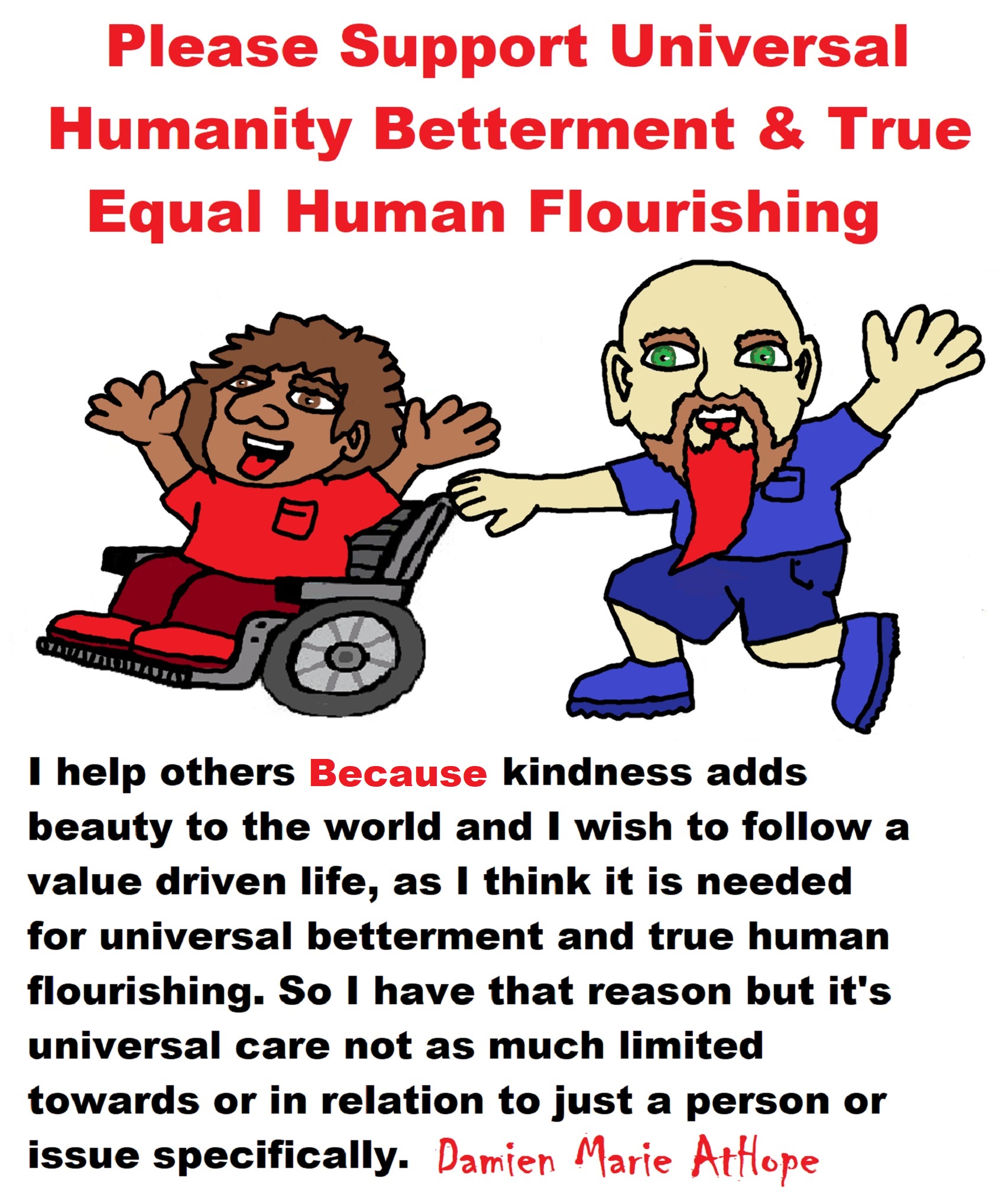
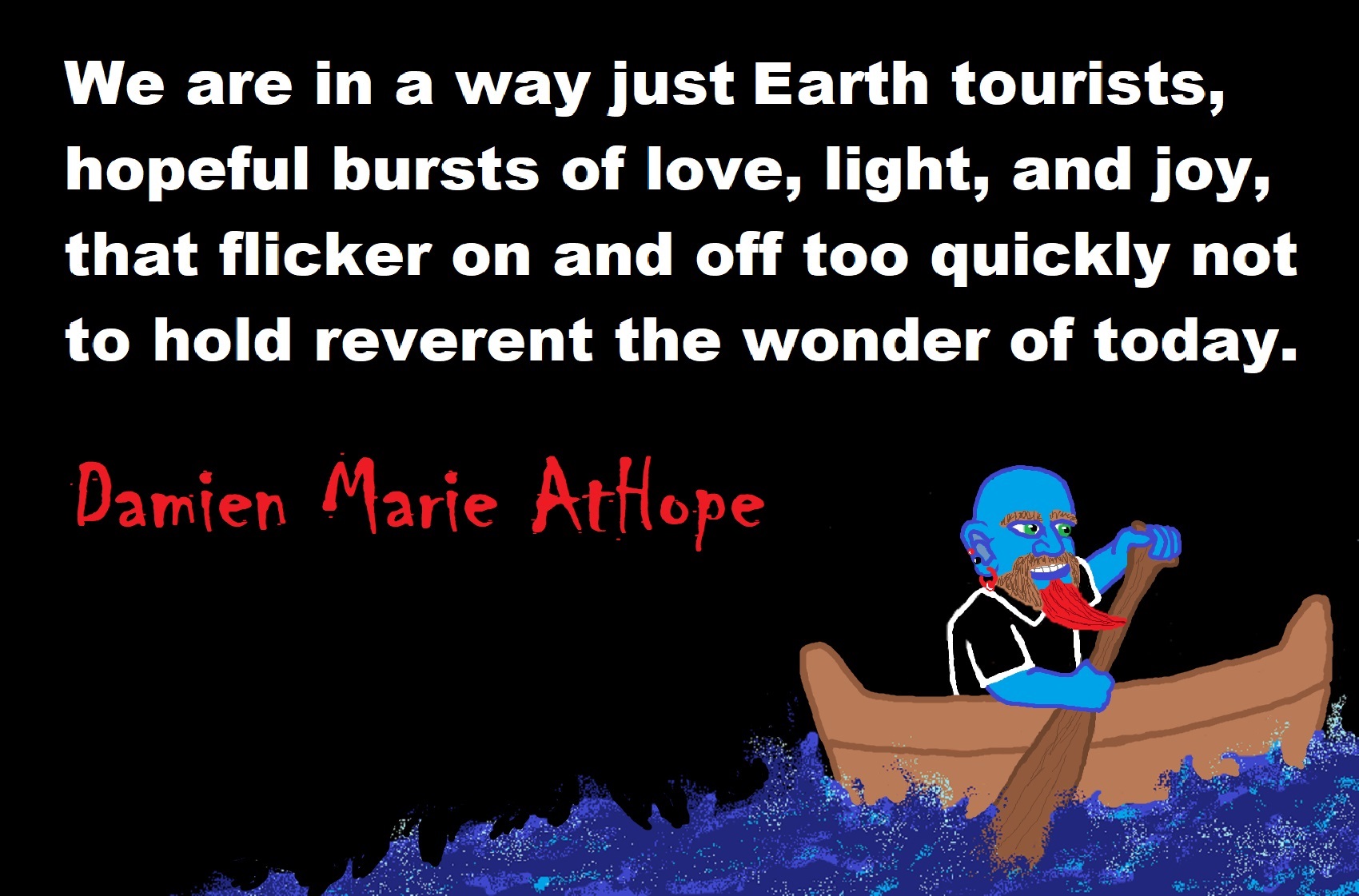
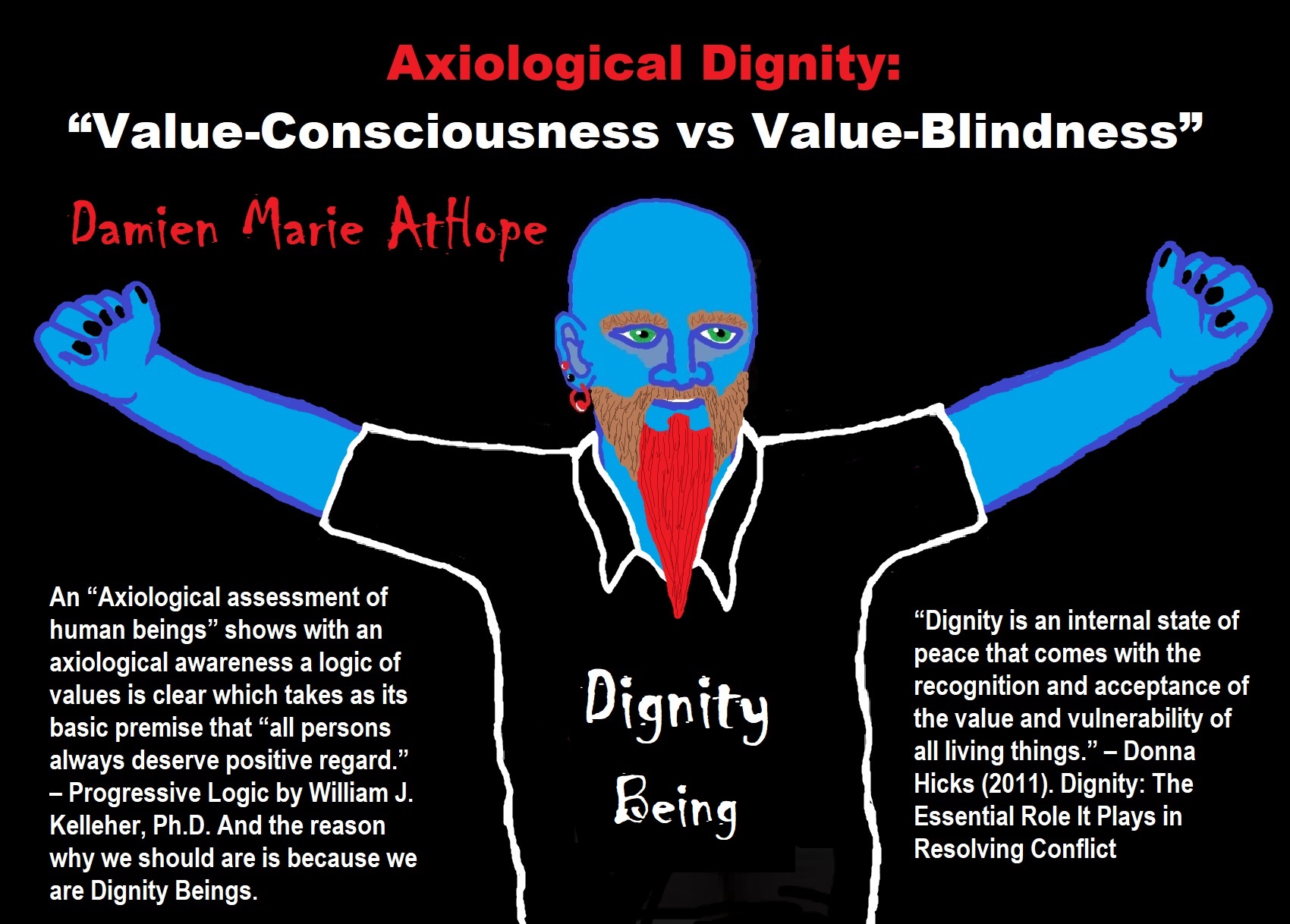
Self-ownership, Human Rights, and Societal Liberty or Freedoms
T.R.U.E. “The Rational Universal Ethics”
Axiological Dignity Being Theory
Axiological Dignity: “Value Consciousness vs Value-Blindness”
FREEDOM in relation to group status
I love H.O.M.E. “Honor, Open, Motivate, & Embrace”
Moral fear and Moral love (which together motivate my axiological ethics)?
Why care? Because we are Dignity Beings.
When Prosocial Ethics (humanist morality) is the standard used to support and respect rights then generally the value of rights, inevitably such morality expression should acknowledge personhood rights (their dignity rights), and that a high standard of ethics wishes to adhere to.
THE SOUL OF LIBERTY: “The Universal Ethic of Freedom and Human Rights” By Fred E. Foldvary
Variations of Human Interaction: ethical, unethical, good, bad, or evil?
My kindness is often taken as weakness. However, I am not even close to a weak person, I am hardcore as hell but see the wisdom of kindness. Due to my bad childhood and bad psychological luck, I can have empathy issues but I have overcome that a lot, now am quit caring. This transformation to kindness and compassion is possible as empathy can both be learned nurture/social/psychological thing as its a value perspective, not simply nature/biological as some think.
We accumulate beliefs that we allow to negatively influence our lives often without realizing it. However, it is our willingness to alter skewed beliefs or assertions that impend balance, which brings about a new caring awareness. When love is followed hate of people is not tolerated. The first sign that one thinks they know it all even when they clearly don’t but instead are using bad belief etiquette is because they apparently stop looking for good answers and certainly have stopped asking good questions. Those who read only a few books think there is little to understand, but those who read lots of books see there is a lot to comprehend. The wrong door is open to anyone who tries, but the right door takes the key of understanding. A closed mind never wins a battle of free thought. You cannot generally reason with a mind already planning a comeback. In our lives, if we think of our self we may have to stand up for ourselves alone. The fixed mine of a person is never free, and the free mind is never fixed. The only fixed reality is the one we fix. The door of reason opens not once but many times. I must stay humble, remembering the strongest truth that I am responsible, for my thinking, behavior, and how I treat others. You cannot punch someone in the face with truth and expect them to listen. Rather it should be offered like a gift they can unwrap for themselves. We are not in this life alone what happens to the ones forgotten effects us all. Truth is often but a vantage point away from losing credibility.
Equality is a behavior it is in how we treat others, not in their state of being. Free is only free to give away you must first pay for it to then offer it as free to others who will most likely charge others for this gift you gave. I would never attack someone’s right to believe just the thinking found it that belief. We often can actually be confused in our assessment of others because we often tend to view people how we wish to see them in our stereotypes, basis and prejudice not how they actually are. I may not honor your values, but I do honor your right to choose them, though don’t forget we are all held accountable by them. Through love, respect, and care we can be a light to the world. Even if we who follow the rationalism of atheism, would never support the non-rationalism of hate, such as the discussing violence against persons simply just peacefully practicing, even a faith I do not support. Blind hate it just as appalling and disgusting to me as blind faith. When “Sorry” is an excuse it has lost its meaning as it is in many cases. Likewise, sorry is used as an absolution ware as once you even if begrudging say “sorry” you are not to be held responsible for negative actions. Sorry by itself is meaningless. I am most proud of myself when I act gentle as well as kind. Reading books does not give you a better perspective they offer you more choices to make your perspective from. I value the sanctity of “rights” of every person to self-define their beliefs and do not attack people because of what they believe. I say attack thinking not people.
Freedom is more than a state of mind it is a shared action. We are not the scars that made us, or the abuse that enslaved us; we are not the shame that drained us, we are not the intolerance that trained us, we are not the fear that betrayed us, or the dark narratives that started our lives of pain. We are who we choose to be now! We are the author of our future. It will be as full of hope, light, and love as we help it have. Like how a hard seed can turn into a tree, I too must move past the pain inside of me to welcome my new life with open arms and an open heart ready not to just receive but give love freely. It may take more than words because humans are hard-wired to a fight or flight response it is natural to wish thing away with words or stop talking altogether when our words fail us. We must strive for a real change that only comes when we act differently. We can all day long wish for more love in the world even ask for it, but it is in our actual loving freely and openly to all without checking if they fit in or are like us that things change. We see the humanity in animals when we move past the animal nature in us. Control hidden in the hope of yet more control is but the mischievous mind waving a lie in the believer’s face. A false hope of freedom by a different controller is just another nothing, a hidden delusion of choice, in such an offer you get no rights just more lies, getting the freedom to choose who is over you only gets you a different seat at the same old rat race. As such repeating a lie of hope doesn’t make it true. When you extinguish one belief for another, you still are deluded by another belief. I am humbly honored whenever I can touch the life of another in a positive way empowering them. I strive to live a clean, free, and self-empowered life. A gift that reflects that wounded soul in myself, and loves it enough to love again!
Money cannot buy a rainbow, warm summer breeze, or a song from a bird, not a feeling enlightenment so to it can give you nothing toward a connection to all life. I support women, I like hearing their voice, their connectedness, their humanism, their hope, their love, their care, and I so respect their wisdom I seek to learn from them be empowered by them for I realize they have so much to teach the WORLD.” I love sex with women but even if I never again had sex with women their value to me would not have diminished in the least. For their real worth to me has nothing to do with their sexuality it is instead their way of being, I hope to care and nurture the world as they often do so well. It is not me trying to be different it is me being true to myself regardless of how others feel. I haven’t been received well in my high value of women most women either view me with suspicion ignore my statements or like in my counseling classes in school actually argue with me or state how men are good too. And I get a few men that do both either view me as a sellout, have alternative motives or crazy or they offer some agreement but more that it is cool for me but not that they completely agree. But I do it for my truth in the first place, so I am ok that I am different often alone. When I say I like hearing their voice I mean I like women’s thinking, their ideas, their opinions, their hopes, dreams, feelings, etc. I am humbly honored whenever I can touch the life of another in a positive way empowering them. A gift that reflects that wounded spirit in myself, and loves it enough to love again! When I came to the end of the show, I realized it was yet a new beginning, a path but leads you to where another has already gone, but a journey into self is to go into a land untrodden and free from the constraints of others. I desire to be the protector of the defenseless, and anybody of whom society tries to tread on. I often feel like a man standing alone on a street corner holding a sign that says “the world is ending” when I express value for women. When I look back at my life, I see how I often spent such time removing myself from a connection to the world. I now see, I now understand, I was always a part of it. For we are a part of nature not separated or segregated from it. Society has to confront the criticism that any intelligent person could have figured out. Love, freedom, and care build more empowerment, justice, and unity then power, control, and hate. If how you value the world is by some monetary agreement maybe you should rethink what or how you define value. I see worth all around me and none of it I see having a price I can pay. I am against hate speech, and it’s like or death threats as well as unprovoked violence. I do think we can challenge, expose flaws of reasoning. I say attack thinking not people. I am against attacking people. I wish to support and if I can change their thinking if not value them as human almost no matter what unless they behave inhumanly like murder etc.
We are all one; I may think you could make better life choices but know it’s still your choice how to live that life. You have rights, and I did not give them to you and would never try to take them away or attack you for choosing even a religion which I hate. But I hate the religion lies and harm, not the believer who I see as a fellow human. Be free, think free, and help others see this freedom too. A quick explanation of Morality to me: 1) Morals: generally a private or personal subset of morality. 2) Ethics: generally a public or social subset of morality. Religion often claims ethics but more generally, use or have morals instead of ethics, so they wrongly use a private or personal morality that they then often try to push on the public. Thus Religion morals can be assumed as mainly pushing a pseudo-morality. Here is my quick explanation of how to be a “Good Person”: “do-no-harm” and “do-help.” In general, parents can install a lasting both for the child internally (towards self) and externally (towards others) this “Love”, often needs to be made up of three unconditional properties in equal measure: 1) Acceptance 2) Understanding & 3) Appreciation; Remove any one of the three and the triangle falls apart and love will not be true or lasting.
Damien, should government be enforcing morals and ethics? My response, societies, all of them even anarchist ones except for maybe some version of anarcho-primitivism, will hold an ethics even if it is as simple as the principle of non-aggression. Which is enforced if it is violated. It is enforcing a societal ethic expectation or a universal ethical standard, So, again we all love ethics in how others treat us, people only want it confused so much, when and if it requires them to apply ethics to others. But again this is a self-beneficial as theirs is a connection to good and well-being. Damien, what if you don’t like the ethics? My response, everyone loves ethics, “You” love ethics just like everyone does in relation to themselves “you” love ethics (you are happy for others to treat you ethically) maybe, you like many of us, can miss this ontology of social interaction which makes everyone love ethics, and how this fact is a not just a morality fact but also just a fact of our being a social animal we love ethics towards themselves so we just need the rationalism. Damien, not everyone agrees on what trustworthiness, respect, responsibility, fairness (especially), caring and citizenship are. My response, citizenship is a property of being seen a connected part of the value to the larger group in a given society and with that is a general set of standards which is granted and expected, and a high standard application of this in universal ethical awareness and the moral reasoning that is used. I wish to champion this awareness and motivation that fortifies a better humanity which is found in the development and cultivation of moral reasoning. http://www.simplypsychology.org/kohlberg.html
Don’t let ANGER become an unethical behavior. Ontology, Epistemology, and Axiology are important thinking tools. Ontology strives to understand what is real and how that is expressed. Epistemology strives to understand what we know or not about what is real and how we know what is or is not how real things are expressed. Axiology strives to understand what is good, valued, or worth and alternatively what is bad, unvalued, or unworthy in what is real from what we know is real and how that value, good, or worth and how that bad, disvalue, or disworth is expressed. Dignity, in my thinking, involves/encompass a phenomenological/psychological-awareness/cognitive-realization and the emotional sensitivity of our sense of self or the emotional understanding about our sense of self. Why care? Well because we are cognitively advanced emotionally aware beings with fragile psychologies desperately needing of prosocial interactions with others. To me, we bloom in kindness and wither under unkindness, and we are prone to mental anguish from trauma that can list a lifetime.
We simply need people, and they need us. And because kindness is like chicken soup to the essence of who we are, by validating the safety needs of our dignity. As I see it now, how odd I find it to have prejudice or bigotry against other humans who are in fact previous fellow beings of dignity, we too often get blinded by the external packaging that holds a being of dignity internally. What we need to understand as well as acknowledge is how we should honor others who are fellow dignity beings and the realization of the value involved in that. As well as strive to understand how an attack to a person’s “human rights” is an attack to the value and worth of a dignity being. I am not really as worried about how I break the box you believe I need to fit as I am worried about the possibility of your confining hopes of hindering me with your limits, these life traps you have decided about and for me are as owning character attacks to my dignity’s needs which can be generalized as acceptance, understanding, and support. May my lips be sweetened with words of encouragement and compassion. May my Heart stay warm in the arms of kindness. May my life be an expression of love to the world. Dignity arises in our emotional awareness depending on cognition. Our dignity is involved when you feel connected feelings with people, animals, plants, places, things, and ideas. Our dignity is involved when we feel an emotional dignity bond “my family”, “my pet”, “my religion”, “my sport’s team” etc. Because of the core sensitivity of our dignity, we feel that when we connect, then we are also acknowledging, understanding, and supporting a perceived sense of dignity. Even if it’s not actually a dignity being in the case of plants, places, things, and ideas; and is rightly interacting with a dignity being in people and animals. We are trying to project “dignity developing motivation” towards them somewhere near equally even though human and animals don’t have the same morality weight to them. To further discuss my idea of *dignity developing motivation” can be seen in expressions like, I love you and I appreciate you. Or the behavior of living and appreciating. However, this is only true between higher cognitive aware beings as dignity and awareness of
I am not really as worried about how I break the box you believe I need to fit as I am worried about the possibility of your confining hopes of hindering me with your limits, these life traps you have decided about and for me are as owning character attacks to my dignity’s needs which can be generalized as acceptance, understanding, and support. May my lips be sweetened with words of encouragement and compassion. May my Heart stay warm in the arms of kindness. May my life be an expression of love to the world. Dignity arises in our emotional awareness depending on cognition. Our dignity is involved when you feel connected feelings with people, animals, plants, places, things, and ideas. Our dignity is involved when we feel an emotional dignity bond “my family”, “my pet”, “my religion”, “my sport’s team” etc. Because of the core sensitivity of our dignity, we feel that when we connect, then we are also acknowledging, understanding, and supporting a perceived sense of dignity. Even if it’s not actually a dignity being in the case of plants, places, things, and ideas; and is rightly interacting with a dignity being in people and animals. We are trying to project “dignity developing motivation” towards them somewhere near equally even though human and animals don’t have the same morality weight to them. To further discuss my idea of *dignity developing motivation” can be seen in expressions like, I love you and I appreciate you. Or the behavior of living and appreciating. However, this is only true between higher cognitive aware beings as dignity and awareness of
I am not really as worried about how I break the box you believe I need to fit as I am worried about the possibility of your confining hopes of hindering me with your limits, these life traps you have decided about and for me are as owning character attacks to my dignity’s needs which can be generalized as acceptance, understanding, and support. May my lips be sweetened with words of encouragement and compassion. May my Heart stay warm in the arms of kindness. May my life be an expression of love to the world. Dignity arises in our emotional awareness depending on cognition. Our dignity is involved when you feel connected feelings with people, animals, plants, places, things, and ideas. Our dignity is involved when we feel an emotional dignity bond “my family”, “my pet”, “my religion”, “my sport’s team” etc. Because of the core sensitivity of our dignity, we feel that when we connect, then we are also acknowledging, understanding, and supporting a perceived sense of dignity. Even if it’s not actually a dignity being in the case of plants, places, things, and ideas; and is rightly interacting with a dignity being in people and animals. We are trying to project “dignity developing motivation” towards them somewhere near equally even though human and animals don’t have the same morality weight to them. To further discuss my idea of *dignity developing motivation” can be seen in expressions like, I love you and I appreciate you. Or the behavior of living and appreciating. However, this is only true between higher cognitive aware beings as dignity and awareness of
I am not really as worried about how I break the box you believe I need to fit as I am worried about the possibility of your confining hopes of hindering me with your limits, these life traps you have decided about and for me are as owning character attacks to my dignity’s needs which can be generalized as acceptance, understanding, and support. May my lips be sweetened with words of encouragement and compassion. May my Heart stay warm in the arms of kindness. May my life be an expression of love to the world. Dignity arises in our emotional awareness depending on cognition. Our dignity is involved when you feel connected feelings with people, animals, plants, places, things, and ideas. Our dignity is involved when we feel an emotional dignity bond “my family”, “my pet”, “my religion”, “my sport’s team” etc. Because of the core sensitivity of our dignity, we feel that when we connect, then we are also acknowledging, understanding, and supporting a perceived sense of dignity. Even if it’s not actually a dignity being in the case of plants, places, things, and ideas; and is rightly interacting with a dignity being in people and animals. We are trying to project “dignity developing motivation” towards them somewhere near equally even though human and animals don’t have the same morality weight to them. To further discuss my idea of *dignity developing motivation” can be seen in expressions like, I love you and I appreciate you. Or the behavior of living and appreciating. However, this is only true between higher cognitive aware beings as dignity and awareness of selfness is directly related to dignity awareness. The higher the dignity awareness the higher the moral weight of the dignity in the beings dignity. Denial likes consistency, the pattern of thinking can not vary from a fixed standard of thinking, or the risk of truth could slip in. Dignity: “Containing Value, and Moral Weight” Dignity, to me, is the emotional sensitivity of our sense of self or the emotional understanding about our sense of self. To me, when we say it’s wrong to kill a human, that person is appealing to our need to value the dignity of the person.’ The person with whom may possibly be killed has a life essence with an attached value and moral weight variations. And moral weight,’ which is different depending on the value of the dignity being you are addressing understanding moral weight as a kind of liability, responsibility, or rights is actualized. So, it’s the dignity to which we are saying validates the right to life. But I believe all living things with cognitively aware have a dignity. As to me, dignity is the name I home to the emotional experience, emotional expression, emotional intelligence or sensitivity at the very core of our sense of self the more aware the hire that dignity value and thus worth.
Dignity is often shredded similar to my thinking: “Moral, ethical, legal, and political discussions use the concept of dignity to express the idea that a being has an innate right to be valued, respected, and to receive ethical treatment. In the modern context, dignity can function as an extension of the Enlightenment-era concepts of inherent, inalienable rights. English-speakers often use the word “dignity” in prescriptive and cautionary ways: for example in politics it can be used to critique the treatment of oppressed and vulnerable groups and peoples, but it has also been applied to cultures and sub-cultures, to religious beliefs and ideals, to animals used for food or research, and to plants. “Dignity” also has descriptive meanings pertaining to human worth. In general, the term has various functions and meanings depending on how the term is used and on the context.” https://en.m.wikipedia.org/wiki/Dignity Moreover, to me, our dignity flourishes with acceptance, understanding, and support. Moreover, our dignity, in a sense, withers with rejection, misunderstanding, and opposition. Dignity thus in my thinking is the emotional sensitivity of our sense of self or the emotional understanding about our sense of self. Damien, so what do you think are the best ways to cultivate dignity? My response, dignity is not a fixed thing and it feels honored or honoring others as well as help self-helping and other-helping; like ones we love or those in need, just as our dignity is affected by the interactions with others. We can value our own dignity and we can and do grow this way, but as I see it because we are social animals, we can usually we cannot fully flourish with our dignity. Thus dignity is emotionally needy for other dignity beings that is why I surmise at least a partially why we feel empathy and compassion or emotional bonds even with animals is a dignity awareness and response. Like when we say “my pet” cat one is acknowledging our increased personal and emotional connecting. So, when we exchange in experiences with say a pet animal what we have done is we raise their dignity. To me, there is a confusion I see some make about the ontological nature of FREEDOM in relation to group status. They think it’s like being alone uninfringed by anything or anyone allowed to do anything. But how can you profess freedom, when you are alone and completely uninvolved with others when the freedom requested, is from the group, to begin with, whether or not one realizes it. So it is wrong to think that freedom is like being alone, rather a FREEDOM of this nature is found in the status of a group or in group dynamics where one individual still holds group sanctioned autonomy thus conceding some limit to one’s freedom rights where they interact with others freedoms (hopefully respecting each others dignity because they feel empathy as fellow dignity beings).
The Ethics of Character in arguments or debates
I wish to not simply think one-sided but strive for truth even if I may be the one wrong. I also always strive to not let anger or frustration to become potential unkind or unethical behaviors:
*Don’t assume ask then strive to understand not just react
*Don’t see them as an enemy they are a fellow learner
*Don’t see it as win-lose it’s about teaching
*Utilize nice behavior
*Utilize nice language
*Utilize nice voice
The Birth of Dignity and Empathy?
Empathy: How Should We Care About One Another?
KELLY MCEVERS, HOST:
Author Leslie Jamison says that as an emotional response, empathy is always perched precariously between gift and invasion. Her new book of essays is called “The Empathy Exams.” In it, she writes about prisoners, medical students, extreme runners and ex-boyfriends. It’s all part of her quest to understand how others feel empathy and how she can feel it, too.
Leslie Jamison joins us now. Leslie, welcome to the show.
LESLIE JAMISON: Thanks for having me.
MCEVERS: The title essay is about actual empathy exams – how you got a job posing as a patient, to test how empathetic medical students are. What was one role you played that you remember?
JAMISON: Well, the role that sort of started to feel like my specialty – like, my wheelhouse – was a mid-20s woman who was in the throes of a huge loss. And instead of processing her grief, her grief was actually turning into seizures that she was having. So she came to the doctor asking for help, kind of getting better from these seizures. And the role that the medical student was supposed to play was to figure out that it was actually this unresolved grief that was giving rise to them. So my job was to kind of let my grief leak out in little pieces, but not know that that was the actual cause behind what was happening.
MCEVERS: And then this gave way for you to write about yourself and some of your own medical troubles. How did that happen?
JAMISON: I actually ended up feeling a kind of greater amount of empathy for doctors and medical students because I saw how many variables they were juggling every time they were encountering a patient, and that let me think about my own encounters with doctors. I was going through a series of medical struggles of my own, in my mid-20s. And so I was thinking about, well, what’s happening in these encounters when I’m the patient and they’re the doctor, and we’re both thinking about kind of how to be good to one another in these situations.
And it was liberating for me, as a writer, to take the form of these scripts that I was working with as a medical actor and think about, well, what would it look like if I was going to turn my own life into a script. How would that script play out?
MCEVERS: Another really moving essay in the book is about people with something called Morgellons disease. First, can you just tell us what that is?
JAMISON: Yeah. So Morgellons disease is this controversial skin disorder. Patients who identify as having Morgellons report a variety of symptoms – sort of itching, sores, lesions. But the most remarkable and distinctive is, they report having these inexplicable fibers coming up out of their skin. And a lot of doctors just don’t believe that there actually are inexplicable fibers. They think it’s a kind of more complicated, psychosomatic reaction.
And what I was interested in was not thinking about, OK, are the fibers real or not. But I wanted to know what this community of patients, sort of how they understood what they were experiencing. And they have an annual conference every year in Austin. And so, I went to that conference to see, well, what the community like that’s built around this pain? And so, I kind of wanted to penetrate what it feels like when you feel like your pain isn’t being recognized.
MCEVERS: Right, because one thing that defines them is that no one, basically, believes them. You go there. You listen to them. You write about them. You give them their due. Do you end up believing them?
JAMISON: I did end up feeling that many of the patients at that Morgellons conference, there was something going on that was much more complicated than sort of, you know, actual fibers although I didn’t – you know, I wasn’t -I wasn’t behind a microscope and so I was constantly trying to acknowledge, you know, I’m not an expert and I’m not totally sure what’s happening. But I went really wanting to give them something different from what the doctors had given them.
And I’d like to think that even if I didn’t end up feeling that the fibers were always real, that I was able to offer a different kind of listening, in so far as my main feelings throughout was like, whatever these fibers are or aren’t, these people are going through something. And I feel like holding that in mind; like, whatever I don’t know or understand about what you’re going through, I can respect that you’re going through something – and try to keep listening, and keep showing up, for that something. That was kind of my guiding imperative.
MCEVERS: In the final essay in the book, you talk about this idea that women are, nowadays, expected to be post-pain. You cite a scene from the TV series “Girls,” where two main characters shout at each other: You’re the wound!
(LAUGHTER)
MCEVERS: You know, this idea that women are sort of wary – because they’re wary of melodrama, they feel like they’re supposed to be funny and clever, and detached from pain. Can you explain that?
JAMISON: Yeah, that essay arose from a kind of nebulous feeling that I’d been having for many years; that I felt a certain amount of shame talking about painful experiences because I felt afraid that I would be seen as – you know, the phrase I use, the wound dweller or wound monger; that, you know, it’s sort of a cheap way to construct an identity, or a plea for sympathy from other people. But that was a very nebulous feeling that I had – that there was some kind of shame around being a woman talking about your pain.
One of the challenges was trying to turn this very vague, nebulous feeling into something that I could actually talk about. I end up focusing, at one point, on this medical study about how women who report pain are more likely to be given sedatives, whereas men are more likely to be given actual pain relief. And that, to me, was – it sort of was putting something more solid or concrete around this fear that I’d had that it was hard to have your pain taken seriously, as a woman.
And I also – when I was in the process of writing that essay, I ended up, you know, I had this moment where I was like, God, I wish I could just ask every intelligent woman in my life what they think; whether they’ve ever felt this shame. And so I ended up just writing an e-mail to like, 40 of the women in my life, asking exactly that question. So their voices become part of the piece as well, to kind of examine that question from as many angles as possible.
MCEVERS: Can you give us an example of one of the responses you got from one of these women?
JAMISON: Yeah. I mean, one of the e-mails that was most provocative to me was a friend who was really upset by the trope of the wounded woman. She actually said that she had gotten my note and had slept on it because she felt sort of charged-up in her response – I think not necessarily upset at me, but sort of upset by this how familiar this figure had become of a kind of self-destructive woman who slept around or drank too much, or was sort of deeply enmeshed in pain but not totally articulating that pain. And that anger was really interesting to me. I wanted to find a way to talk about that anger – how women have become angry about the image of the wounded woman that kind of attends them or haunts them.
MCEVERS: Leslie Jamison is the author of a new collection of essays, “The Empathy Exams.” Leslie, thanks so much for talking with us.
JAMISON: Thanks for having me.
When is empathy a good thing, and when is it a bad thing?
Is feeling someone else’s pain a good thing, or a bad thing? Psychologist Mark Davis has suggested that there are 3 important types of empathy. The first is a purely “cognitive” form of empathy that he terms “Perspective-Taking.” This is being able to see things from another’s point of view. Putting yourself in someone else’s shoes. It is important to better understand where someone is coming from, but it’s not what we typically think of as empathy. A second type of empathy, Davis terms “Personal Distress.” Personal distress is literally feeling another’s emotions. When you are watching a scary movie, and you start to empathize with the hero and feel afraid, that is personal distress in action. You are actually feeling the other’s emotion through a process called “emotional contagion.” The actor, or another person, is actually “infecting” you with their emotion. We all experience personal distress, but too much of it may not be a good thing. Some people are so prone to feeling other’s emotional states that they are battered about by the feelings and emotions of others (thus the label of “distress”). When it is sometimes said, “I feel your pain.” It suggested that one has empathy and it makes them seem more human and in touch with his constituents. Did they really mean it? Often they don’t really mean that they felt someone’s pain (i.e., vicariously felt the other’s emotion). What they mean seems to be the third type of empathy: Empathic Concern. This type is what we most often think about when we hear the term “empathy.” It is the ability to recognize another’s emotional state, feel in tune with that emotional state, and if it is a negative/distressful emotion, feel and show appropriate concern. These 3 types of empathy represent different aspects of our personalities. A person high in perspective-taking may be good at understanding others’ points of view, but may not get very involved in others’ emotions. An individual high on personal distress will, as suggested, be prone to experience others’ emotional states, which has good and not-so-good aspects. Years ago we conducted a study with hospice nurses caring for terminally-ill patients. What we found was that possessing empathic concern was positively related to the nurses’ performance, but personal distress was negatively related. We surmised that if hospice nurses felt their patients’ pain (and family members’ distress as well), it made them less able to do their job of providing comfort to the patient and family because they had their own emotions that they had to deal with. In reality, we all have some level of each of the types of empathy. The key is to understand the ways that we are empathic with others, and to realize the strengths and limitations of each type of empathy.
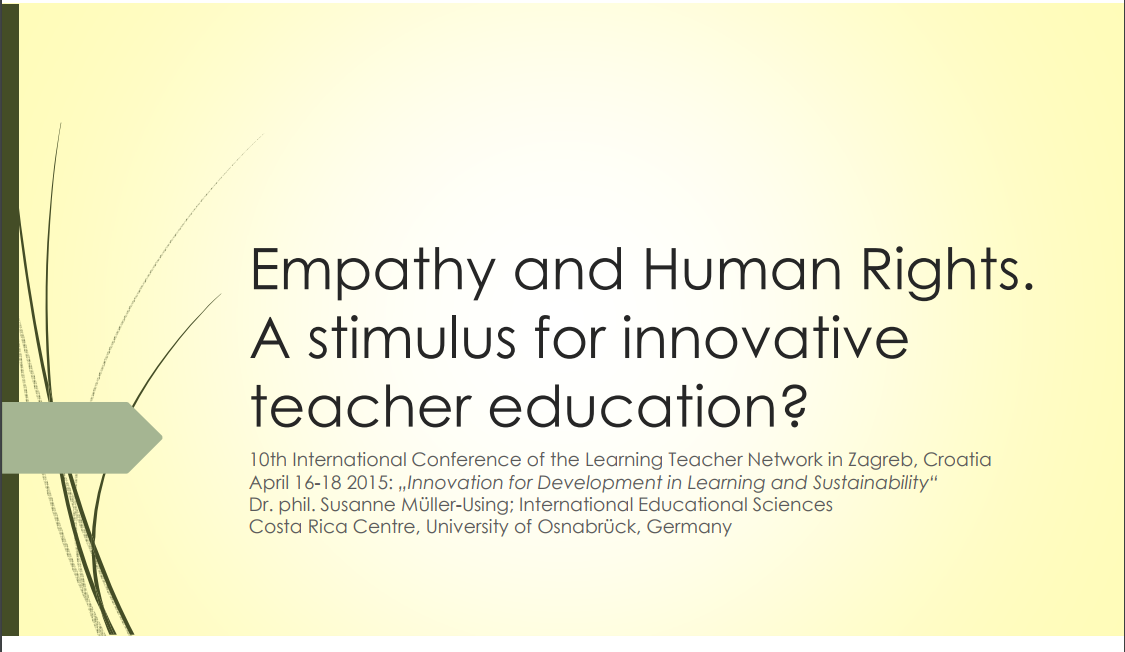

While hallucinogens are associated with shamanism, it is alcohol that is associated with paganism.
The Atheist-Humanist-Leftist Revolutionaries Shows in the prehistory series:
Show two: Pre-animism 300,000 years old and animism 100,000 years old: related to “Anarchism and Socialism”
Show tree: Totemism 50,000 years old: related to “Anarchism and Socialism”
Show four: Shamanism 30,000 years old: related to “Anarchism and Socialism”
Show five: Paganism 12,000 years old: related to “Anarchism and Socialism”
Show six: Emergence of hierarchy, sexism, slavery, and the new male god dominance: Paganism 7,000-5,000 years old: related to “Anarchism and Socialism” (Capitalism) (World War 0) Elite and their slaves!
Prehistory: related to “Anarchism and Socialism” the division of labor, power, rights, and recourses: VIDEO
Pre-animism 300,000 years old and animism 100,000 years old: related to “Anarchism and Socialism”: VIDEO
Totemism 50,000 years old: related to “Anarchism and Socialism”: VIDEO
Shamanism 30,000 years old: related to “Anarchism and Socialism”: VIDEO
Paganism 12,000 years old: related to “Anarchism and Socialism” (Pre-Capitalism): VIDEO
Paganism 7,000-5,000 years old: related to “Anarchism and Socialism” (Capitalism) (World War 0) Elite and their slaves: VIEDO
Paganism 5,000 years old: progressed organized religion and the state: related to “Anarchism and Socialism” (Kings and the Rise of the State): VIEDO
Paganism 4,000 years old: related to “Anarchism and Socialism” (First Moralistic gods, then the Origin time of Monotheism): VIEDO
I do not hate simply because I challenge and expose myths or lies any more than others being thought of as loving simply because of the protection and hiding from challenge their favored myths or lies.
The truth is best championed in the sunlight of challenge.
An archaeologist once said to me “Damien religion and culture are very different”
My response, So are you saying that was always that way, such as would you say Native Americans’ cultures are separate from their religions? And do you think it always was the way you believe?
I had said that religion was a cultural product. That is still how I see it and there are other archaeologists that think close to me as well. Gods too are the myths of cultures that did not understand science or the world around them, seeing magic/supernatural everywhere.
I personally think there is a goddess and not enough evidence to support a male god at Çatalhöyük but if there was both a male and female god and goddess then I know the kind of gods they were like Proto-Indo-European mythology.
This series idea was addressed in, Anarchist Teaching as Free Public Education or Free Education in the Public: VIDEO
Our 12 video series: Organized Oppression: Mesopotamian State Force and the Politics of power (9,000-4,000 years ago), is adapted from: The Complete and Concise History of the Sumerians and Early Bronze Age Mesopotamia (7000-2000 BC): https://www.youtube.com/watch?v=szFjxmY7jQA by “History with Cy“
Show #1: Mesopotamian State Force and the Politics of Power (Samarra, Halaf, Ubaid)
Show #2: Mesopotamian State Force and the Politics of Power
Show #3: Mesopotamian State Force and the Politics of Power (Uruk and the First Cities)
Show #4: Mesopotamian State Force and the Politics of Power (First Kings)
Show #5: Mesopotamian State Force and the Politics of Power (Early Dynastic Period)
Show #6: Mesopotamian State Force and the Politics of Power
Show #7: Mesopotamian State Force and the Politics of Power (Sargon and Akkadian Rule)
Show #9: Mesopotamian State Force and the Politics of Power (Gudea of Lagash and Utu-hegal)
Show #12: Mesopotamian State Force and the Politics of Power (Aftermath and Legacy of Sumer)

The “Atheist-Humanist-Leftist Revolutionaries”
Cory Johnston ☭ Ⓐ Atheist Leftist @Skepticallefty & I (Damien Marie AtHope) @AthopeMarie (my YouTube & related blog) are working jointly in atheist, antitheist, antireligionist, antifascist, anarchist, socialist, and humanist endeavors in our videos together, generally, every other Saturday.
Why Does Power Bring Responsibility?
Think, how often is it the powerless that start wars, oppress others, or commit genocide? So, I guess the question is to us all, to ask, how can power not carry responsibility in a humanity concept? I know I see the deep ethical responsibility that if there is power their must be a humanistic responsibility of ethical and empathic stewardship of that power. Will I be brave enough to be kind? Will I possess enough courage to be compassionate? Will my valor reach its height of empathy? I as everyone, earns our justified respect by our actions, that are good, ethical, just, protecting, and kind. Do I have enough self-respect to put my love for humanity’s flushing, over being brought down by some of its bad actors? May we all be the ones doing good actions in the world, to help human flourishing.
I create the world I want to live in, striving for flourishing. Which is not a place but a positive potential involvement and promotion; a life of humanist goal precision. To master oneself, also means mastering positive prosocial behaviors needed for human flourishing. I may have lost a god myth as an atheist, but I am happy to tell you, my friend, it is exactly because of that, leaving the mental terrorizer, god belief, that I truly regained my connected ethical as well as kind humanity.
Cory and I will talk about prehistory and theism, addressing the relevance to atheism, anarchism, and socialism.
At the same time as the rise of the male god, 7,000 years ago, there was also the very time there was the rise of violence, war, and clans to kingdoms, then empires, then states. It is all connected back to 7,000 years ago, and it moved across the world.
Cory Johnston: https://damienmarieathope.com/2021/04/cory-johnston-mind-of-a-skeptical-leftist/?v=32aec8db952d
The Mind of a Skeptical Leftist (YouTube)
Cory Johnston: Mind of a Skeptical Leftist @Skepticallefty
The Mind of a Skeptical Leftist By Cory Johnston: “Promoting critical thinking, social justice, and left-wing politics by covering current events and talking to a variety of people. Cory Johnston has been thoughtfully talking to people and attempting to promote critical thinking, social justice, and left-wing politics.” http://anchor.fm/skepticalleft
Cory needs our support. We rise by helping each other.
Cory Johnston ☭ Ⓐ @Skepticallefty Evidence-based atheist leftist (he/him) Producer, host, and co-host of 4 podcasts @skeptarchy @skpoliticspod and @AthopeMarie
Damien Marie AtHope (“At Hope”) Axiological Atheist, Anti-theist, Anti-religionist, Secular Humanist. Rationalist, Writer, Artist, Poet, Philosopher, Advocate, Activist, Psychology, and Armchair Archaeology/Anthropology/Historian.
Damien is interested in: Freedom, Liberty, Justice, Equality, Ethics, Humanism, Science, Atheism, Antiteism, Antireligionism, Ignosticism, Left-Libertarianism, Anarchism, Socialism, Mutualism, Axiology, Metaphysics, LGBTQI, Philosophy, Advocacy, Activism, Mental Health, Psychology, Archaeology, Social Work, Sexual Rights, Marriage Rights, Woman’s Rights, Gender Rights, Child Rights, Secular Rights, Race Equality, Ageism/Disability Equality, Etc. And a far-leftist, “Anarcho-Humanist.”
I am not a good fit in the atheist movement that is mostly pro-capitalist, I am anti-capitalist. Mostly pro-skeptic, I am a rationalist not valuing skepticism. Mostly pro-agnostic, I am anti-agnostic. Mostly limited to anti-Abrahamic religions, I am an anti-religionist.
To me, the “male god” seems to have either emerged or become prominent around 7,000 years ago, whereas the now favored monotheism “male god” is more like 4,000 years ago or so. To me, the “female goddess” seems to have either emerged or become prominent around 11,000-10,000 years ago or so, losing the majority of its once prominence around 2,000 years ago due largely to the now favored monotheism “male god” that grow in prominence after 4,000 years ago or so.
My Thought on the Evolution of Gods?
Animal protector deities from old totems/spirit animal beliefs come first to me, 13,000/12,000 years ago, then women as deities 11,000/10,000 years ago, then male gods around 7,000/8,000 years ago. Moralistic gods around 5,000/4,000 years ago, and monotheistic gods around 4,000/3,000 years ago.
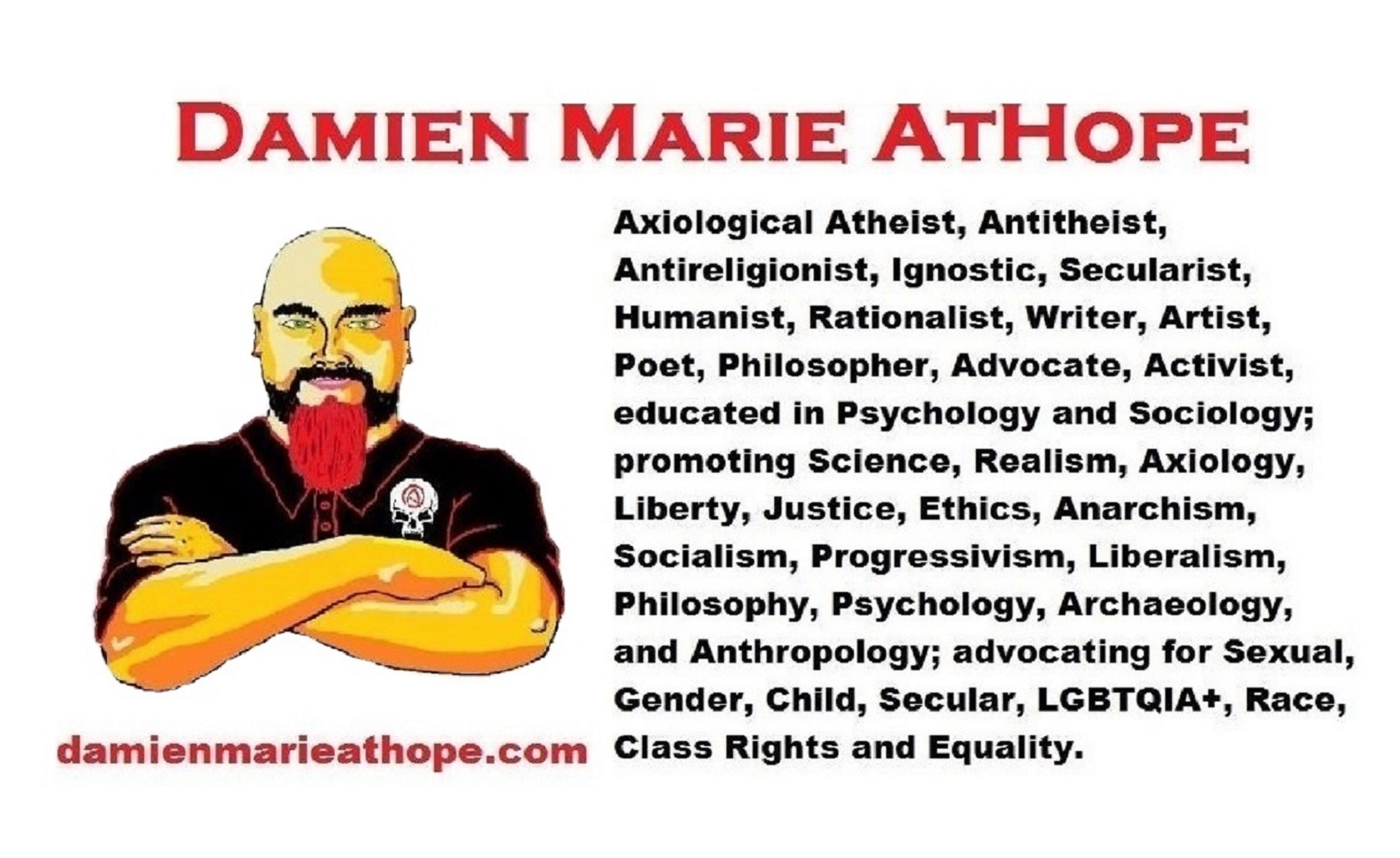
Damien Marie AtHope (Said as “At” “Hope”)/(Autodidact Polymath but not good at math):
Axiological Atheist, Anti-theist, Anti-religionist, Secular Humanist, Rationalist, Writer, Artist, Jeweler, Poet, “autodidact” Philosopher, schooled in Psychology, and “autodidact” Armchair Archaeology/Anthropology/Pre-Historian (Knowledgeable in the range of: 1 million to 5,000/4,000 years ago). I am an anarchist socialist politically. Reasons for or Types of Atheism
My Website, My Blog, & Short-writing or Quotes, My YouTube, Twitter: @AthopeMarie, and My Email: damien.marie.athope@gmail.com

